
Sounding Bodies: Collective Utterance in Darkness
An evening workshop facilitated by Maya Yu Zhang — and the first iteration of their collective somatic research. Together, participants learned about the historical intersections between performance, activism, and ritual, and explored movement as a shared, somatic and liberatory practice.
This event was hosted as a part of the Black Box Presents series at Vox Populi Gallery, during the Mid-Autumn season in October 2025.
An evening workshop facilitated by Maya Yu Zhang — and the first iteration of their collective somatic research. Together, participants learned about the historical intersections between performance, activism, and ritual, and explored movement as a shared, somatic and liberatory practice.
This event was hosted as a part of the Black Box Presents series at Vox Populi Gallery, during the Mid-Autumn season in October 2025.
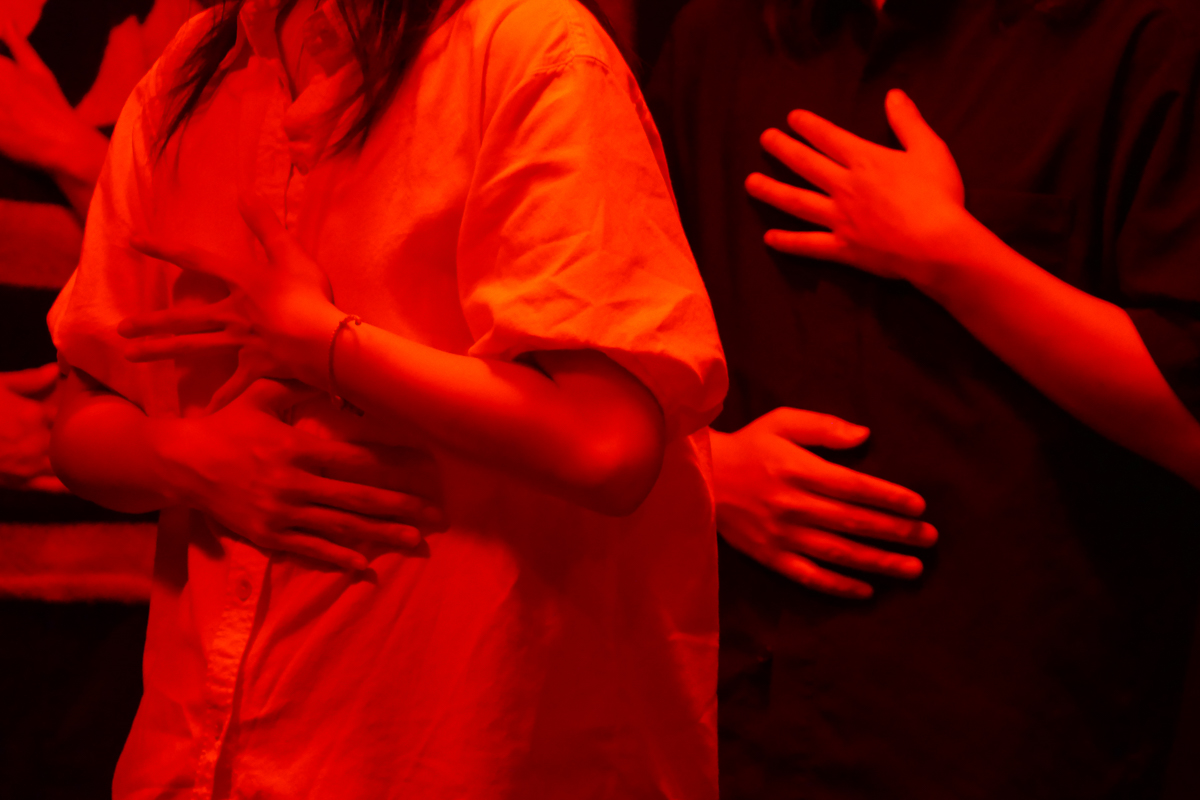


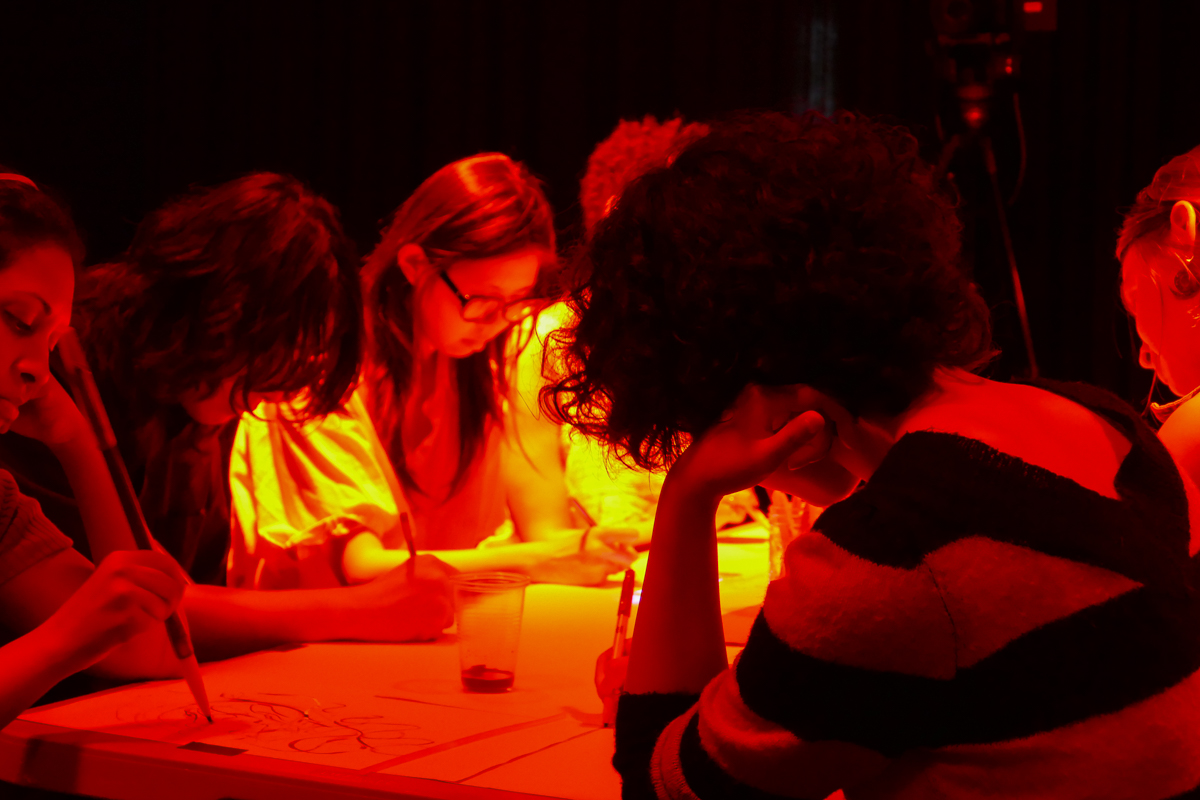



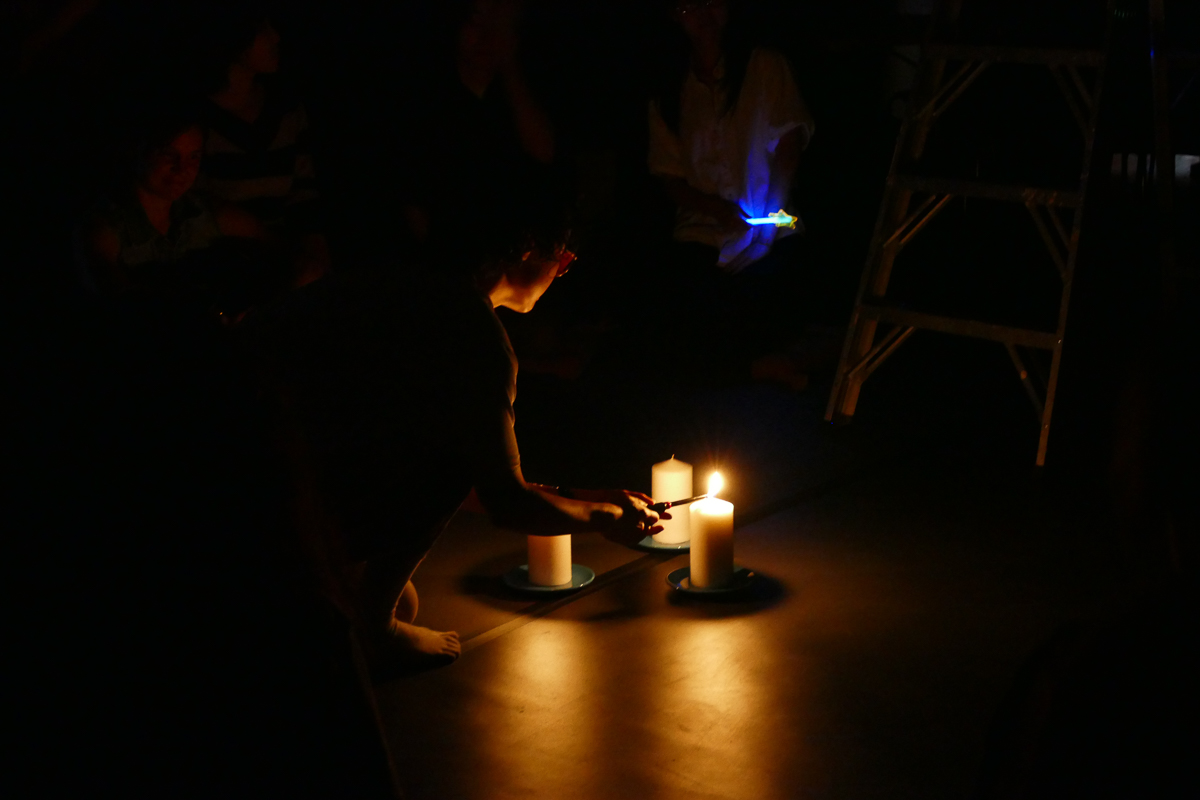
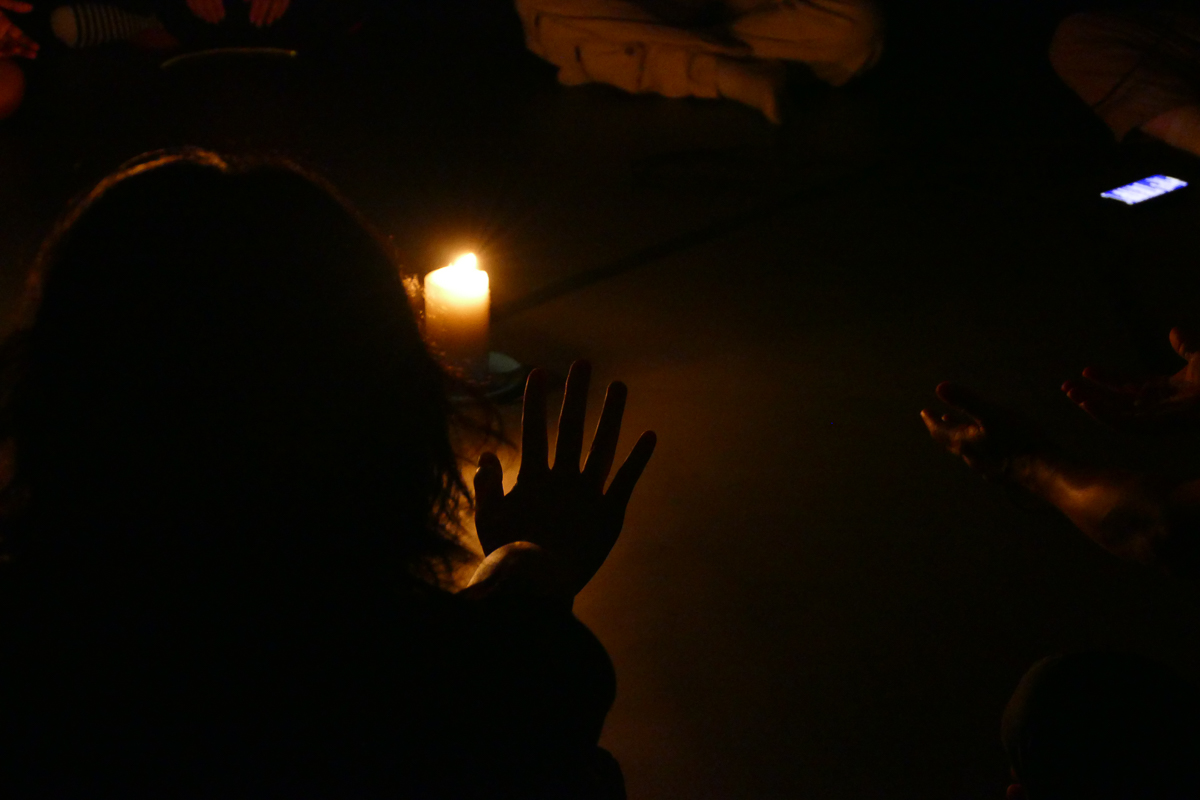

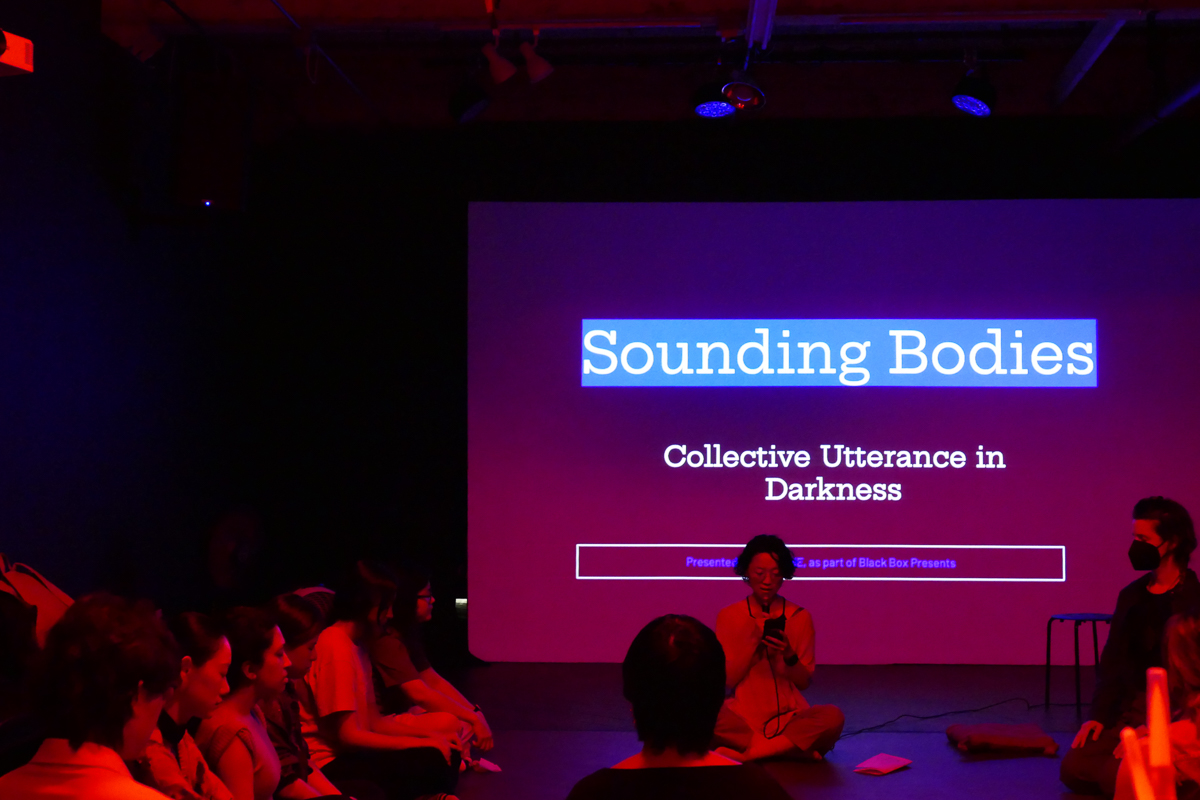
Photo Credit: Andra Palchick
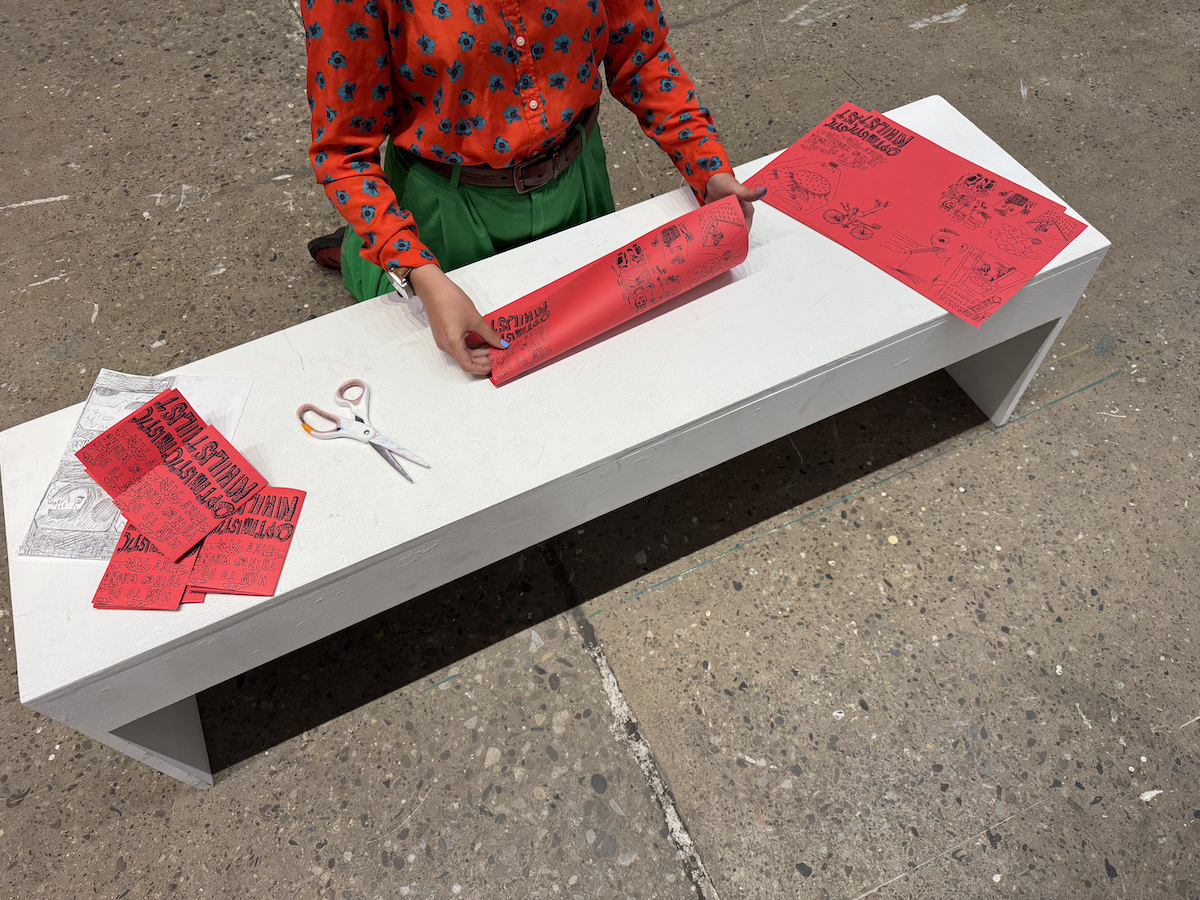


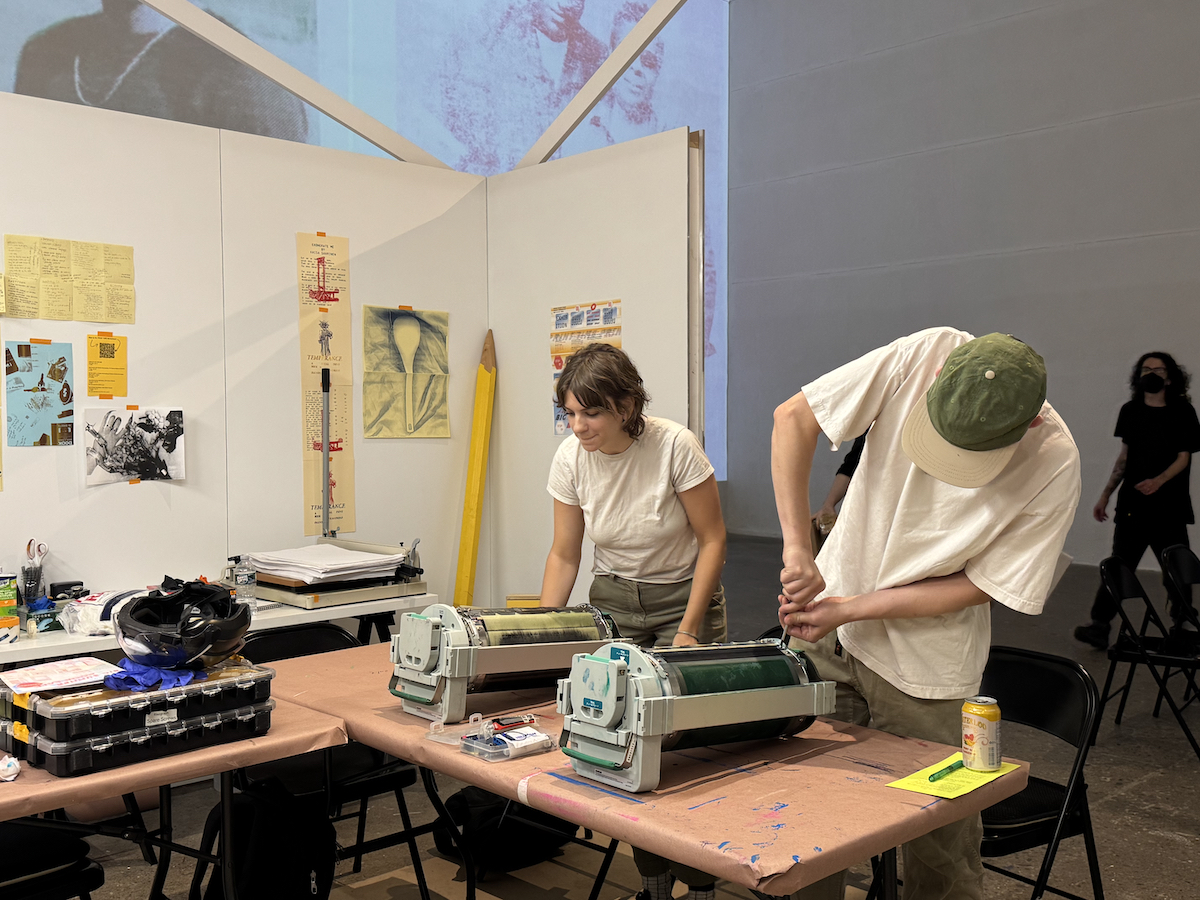
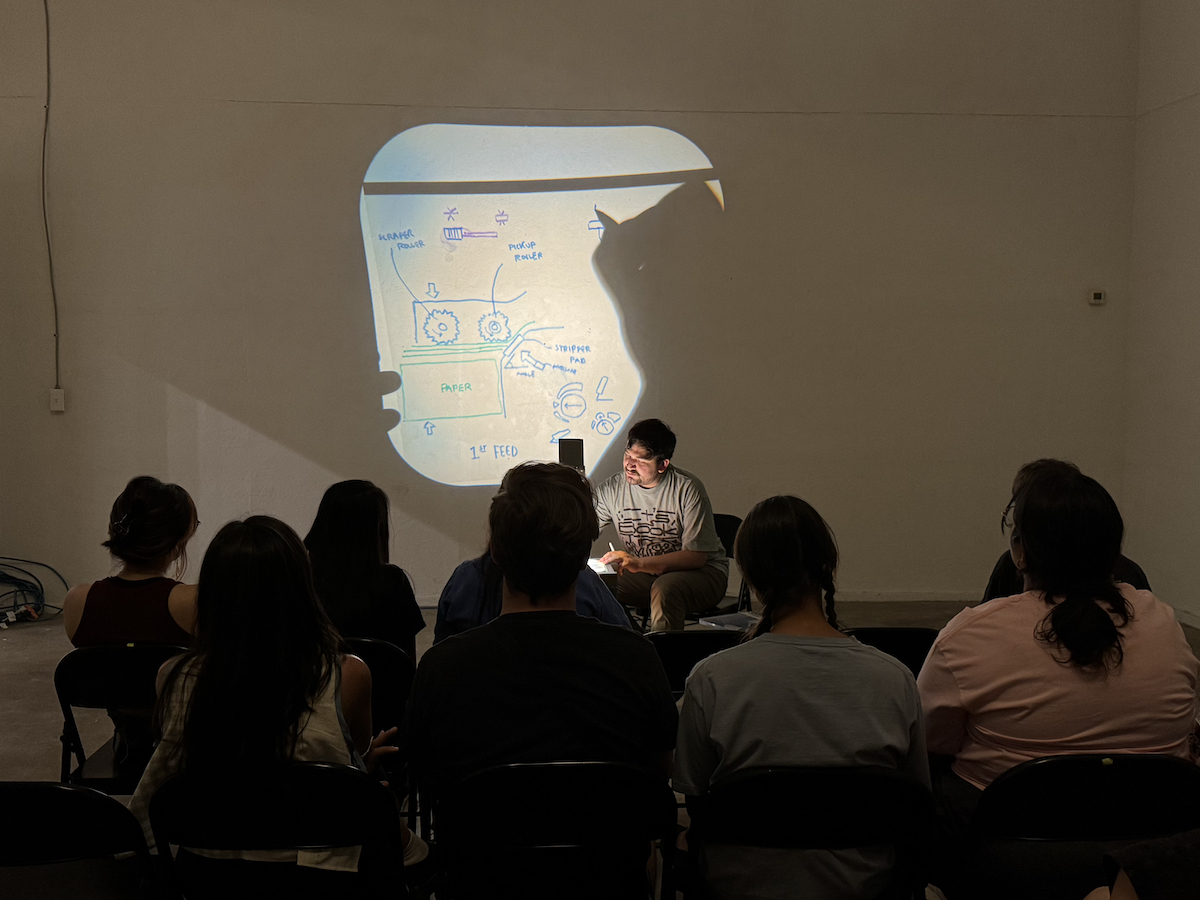




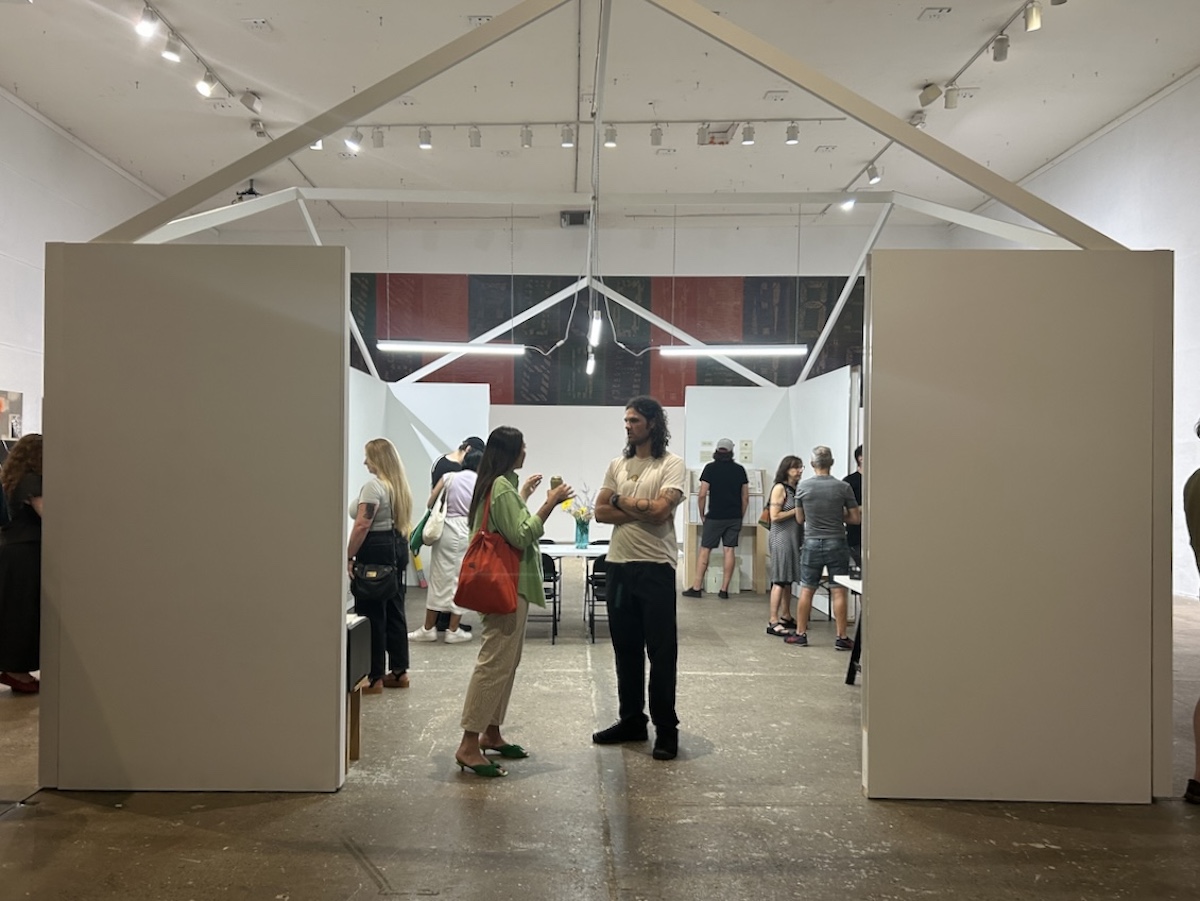
PRINT TIME
A monthlong exhibition and programming series dedicated to print culture, community publishing, and their surrounding local ecosystems. Hosted at Icebox Project Space in July, 2025, featuring:
Large-scale printworks by
Free workshops led by
Closed out alongside 30 vendors, new and familiar, at our 4th annual Big Summer Book Sale.
Co-organized with Icebox Project Space and Ulises. Generous support from the Penn Treaty Special Services District and Fire Museum Presents.
A monthlong exhibition and programming series dedicated to print culture, community publishing, and their surrounding local ecosystems. Hosted at Icebox Project Space in July, 2025, featuring:
Large-scale printworks by
Erik Ruin
Jarrah May
Kocot & Hatton
Olivia Fredricks
Free workshops led by
FORTUNE — RISO 101
Rayhan Blankinship — Zine Forest
Justin J. Keller — IN THE QUIET: A Public Printmaking & Family Archive Workshop
Robert Baxter — RISO Maintenance & Drum Repair Workshops
Closed out alongside 30 vendors, new and familiar, at our 4th annual Big Summer Book Sale.
Co-organized with Icebox Project Space and Ulises. Generous support from the Penn Treaty Special Services District and Fire Museum Presents.
Annotated Readers: Further Notes
An interactive installation and extension of our Annotated Readers project, adapted for Asian Arts Initiative’s 2025 show, Crescendo: How Art Makes Movements (1981-1999). Visitors are welcome to peruse and choose from a selection of Reader excerpts, printed on transparencies — to display using an overhead projector at the center of the room. At the projector, they are encouraged to add their own notes, associations, feelings, and questions to the margins — animating the page with their references and reactions, furthering this information circular. Their marks will stay with these pages throughout the run of this show; further, even.
An interactive installation and extension of our Annotated Readers project, adapted for Asian Arts Initiative’s 2025 show, Crescendo: How Art Makes Movements (1981-1999). Visitors are welcome to peruse and choose from a selection of Reader excerpts, printed on transparencies — to display using an overhead projector at the center of the room. At the projector, they are encouraged to add their own notes, associations, feelings, and questions to the margins — animating the page with their references and reactions, furthering this information circular. Their marks will stay with these pages throughout the run of this show; further, even.

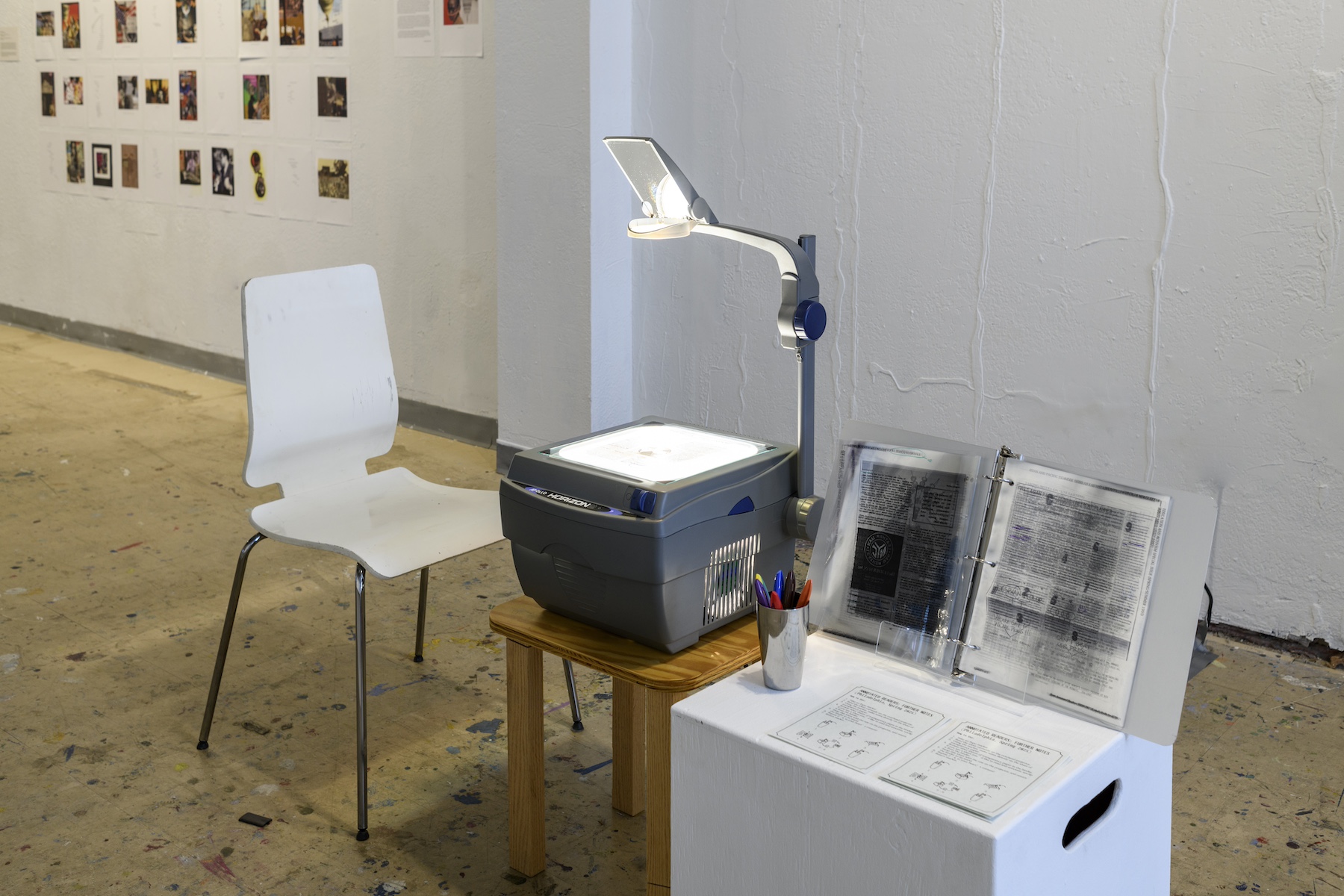
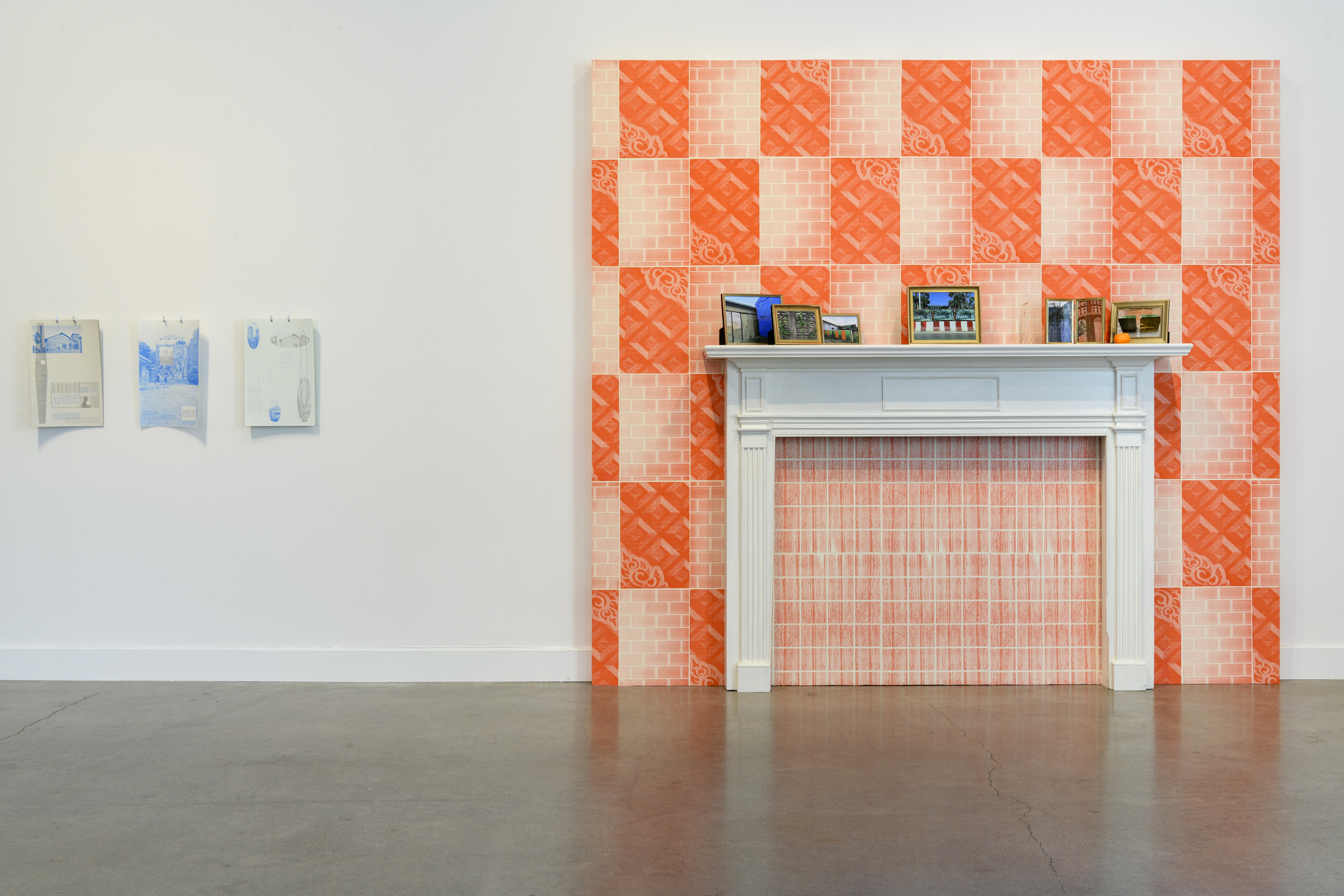
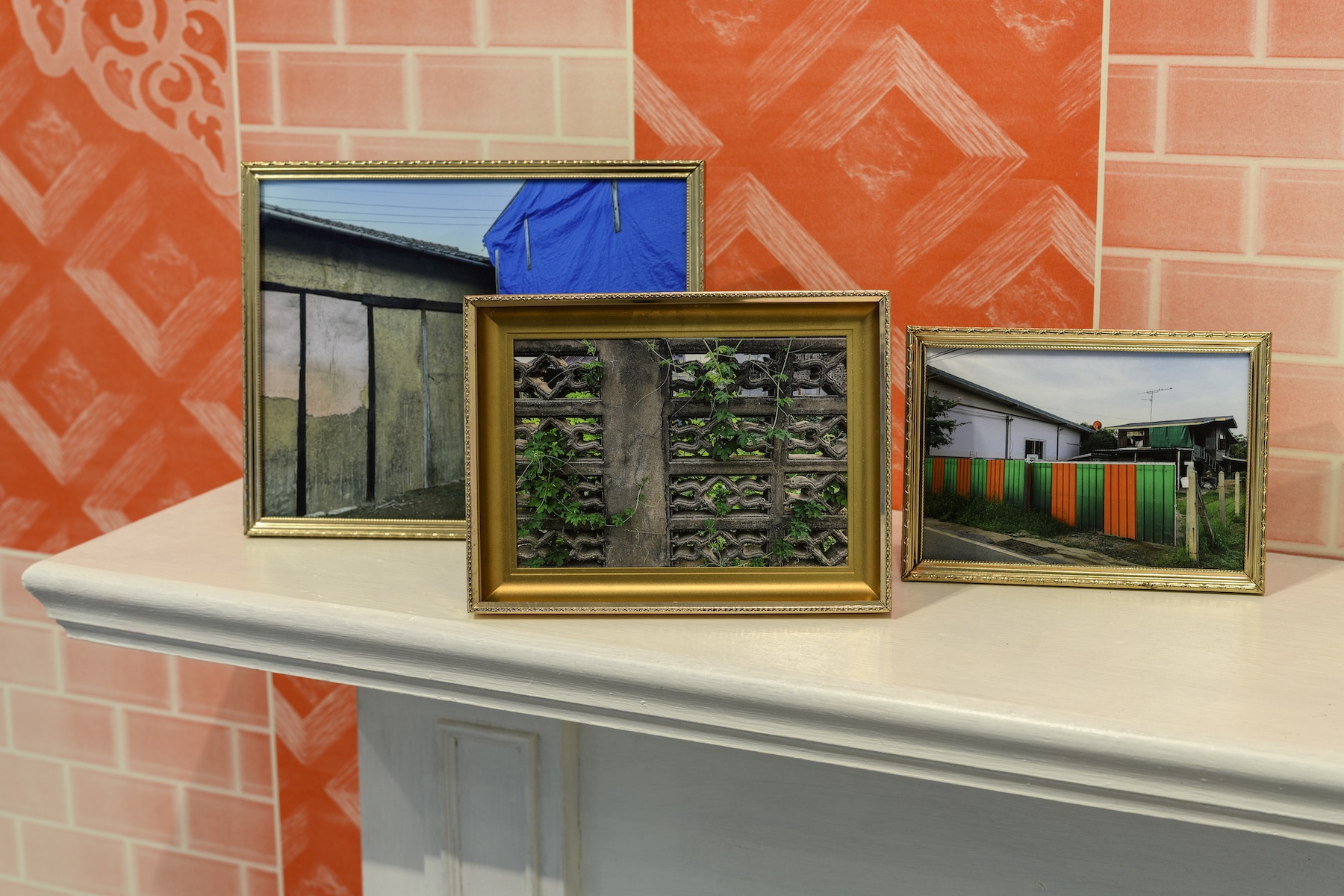
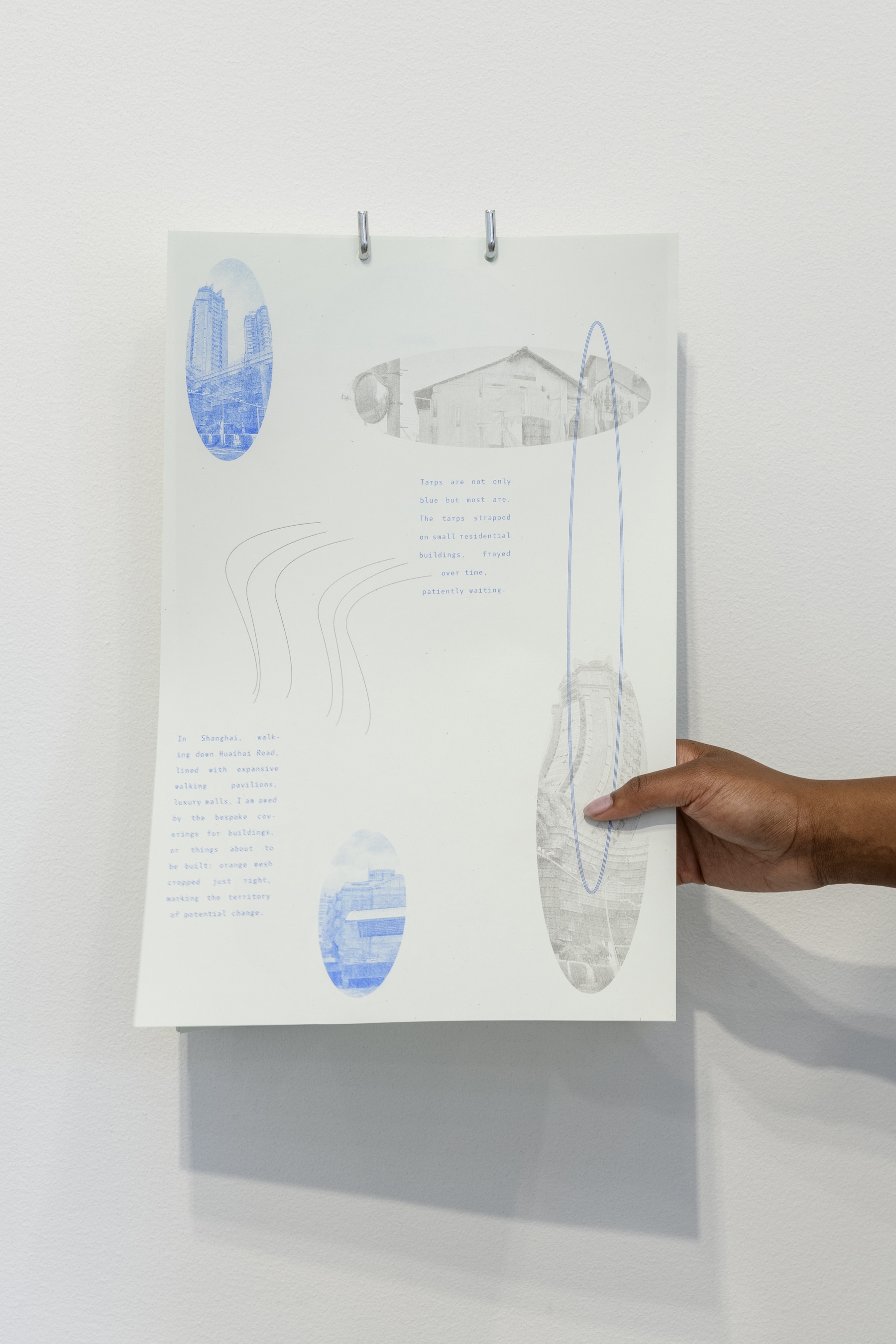
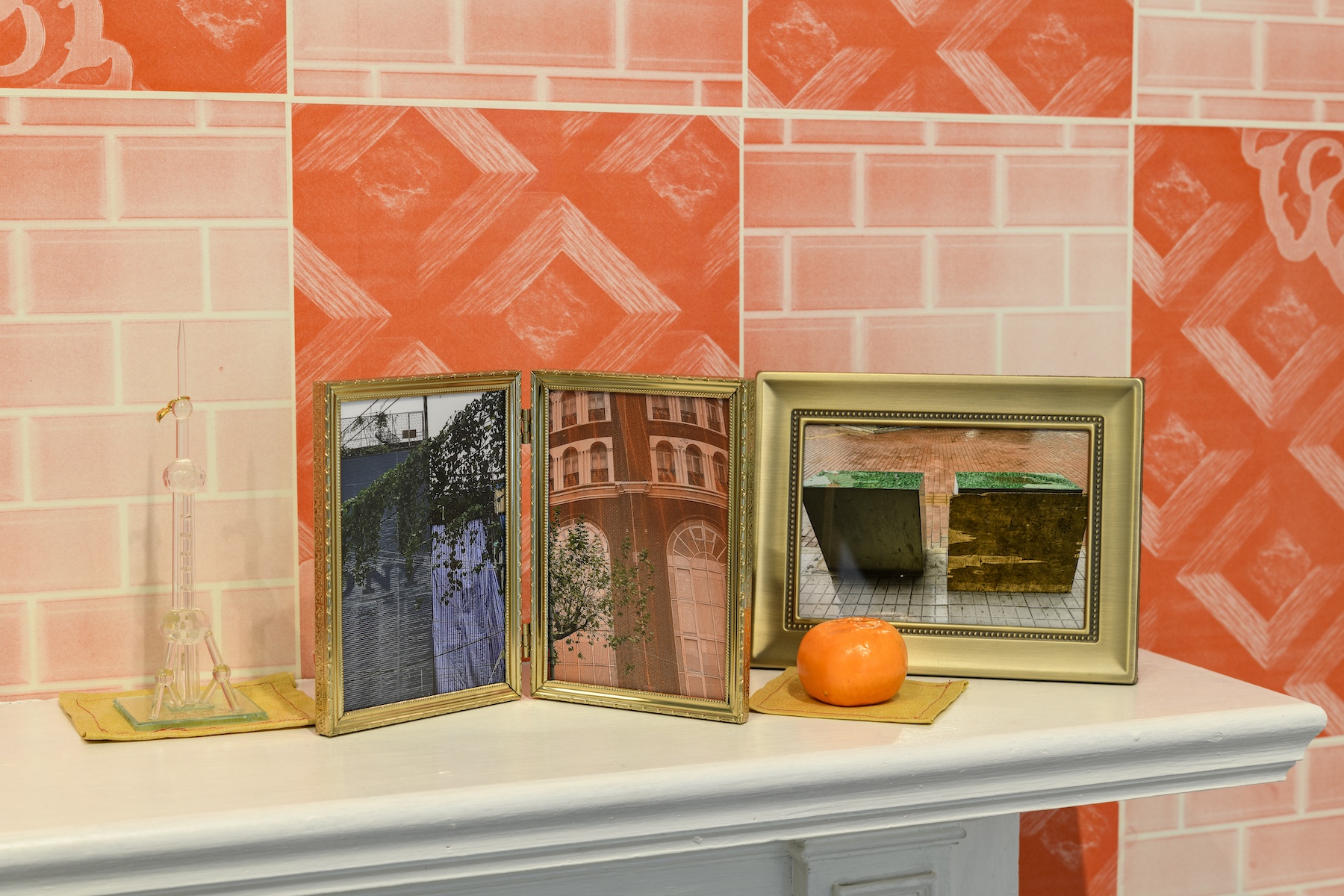
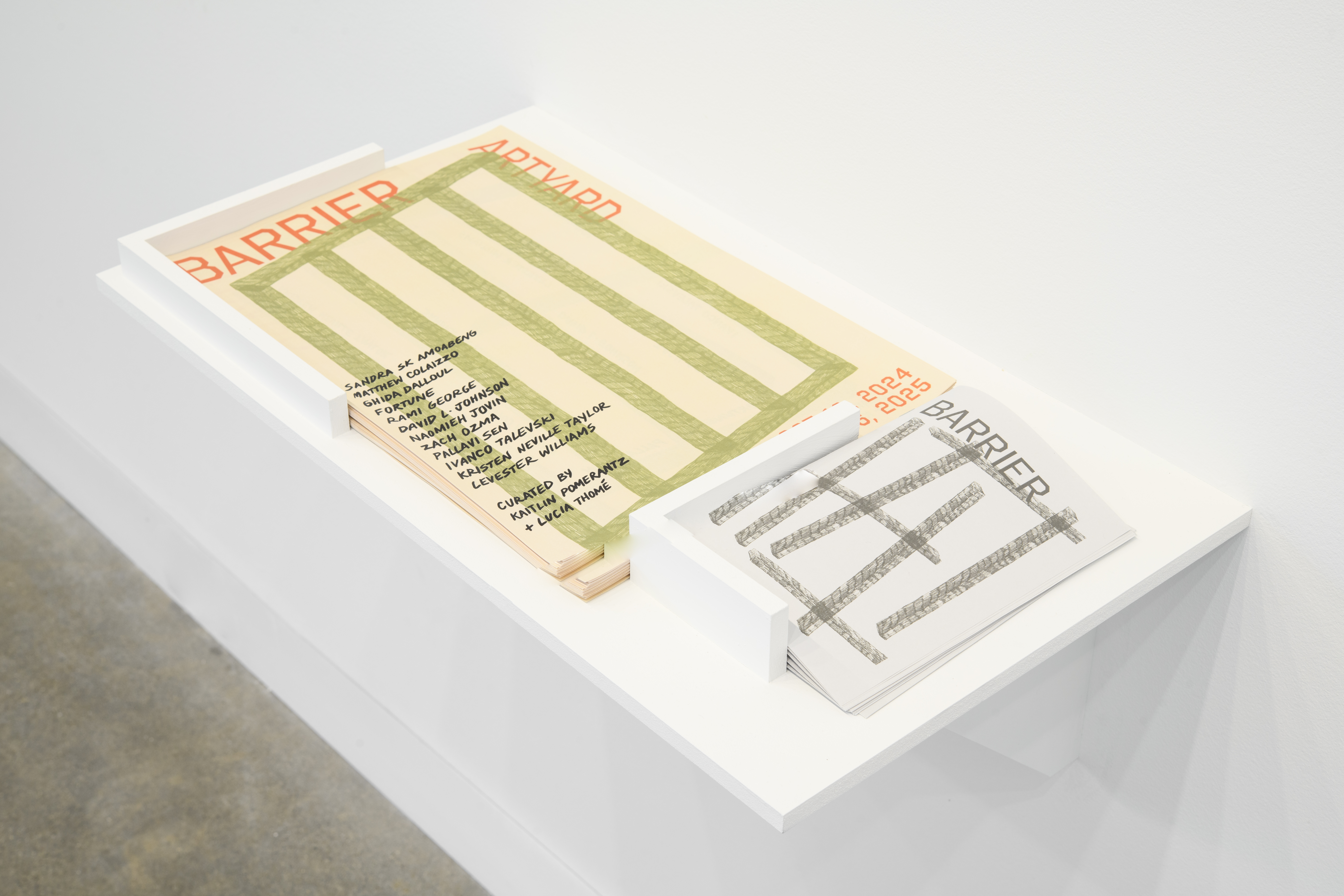
Altars and Passages
Two works created for Barrier, a group show at ArtYard, curated by Kaitlin Pomerantz and Lucia Thomé: Altars, an installation of risograph-printed wallpaper and framed photographs on a mantel; and Passages, a set of three riso-printed takeaways, designed in rounds between us, each pass an interruption and a crossing.
Working from commonplace barriers and barricades we photographed during our solo and collective travels across China, Japan, and Thailand, we process our homeland journeys wrought with awe and impatience, renewal and risk: Construction mesh in orange, blue, and green / Windows cut from cement walls / Tarps carefully pinned over tomorrow’s produce / Vinyl prints of nature scenes, obscuring construction of unknown scale. We venture that these barriers are altars to what had been before, and what will become in their place.
These images yield a history (of supply, of design, of discourse) we don’t yet understand, for a future we will not soon see. We will not be impacted by the displacement of development here; we have also, already, been displaced. In our particular experiences as diasporic citizens of the US, seeking connection in our motherlands, honoring these images is, in a sense, honoring a history we can never fully apprehend, living where we are — on one side of a barrier. To the change they signal, we give altar.
Two works created for Barrier, a group show at ArtYard, curated by Kaitlin Pomerantz and Lucia Thomé: Altars, an installation of risograph-printed wallpaper and framed photographs on a mantel; and Passages, a set of three riso-printed takeaways, designed in rounds between us, each pass an interruption and a crossing.
Working from commonplace barriers and barricades we photographed during our solo and collective travels across China, Japan, and Thailand, we process our homeland journeys wrought with awe and impatience, renewal and risk: Construction mesh in orange, blue, and green / Windows cut from cement walls / Tarps carefully pinned over tomorrow’s produce / Vinyl prints of nature scenes, obscuring construction of unknown scale. We venture that these barriers are altars to what had been before, and what will become in their place.
These images yield a history (of supply, of design, of discourse) we don’t yet understand, for a future we will not soon see. We will not be impacted by the displacement of development here; we have also, already, been displaced. In our particular experiences as diasporic citizens of the US, seeking connection in our motherlands, honoring these images is, in a sense, honoring a history we can never fully apprehend, living where we are — on one side of a barrier. To the change they signal, we give altar.
Open Sense, Common Source
A workshop series, which considers sustainability not only of land and sea — but also of stories, built from local economies and kindred exchanges, in communion with other teachers and learners.
The first installment was developed in partnership with William Way LGBT Community Center, as a daylong program at the Southeast Asian Market in FDR Park.
It featured three Philly-based queer Asian artists, who work in material ecologies of multiple senses — and who orient toward stories in ways that are playful and plentiful, tactile and colloquial. Feini Yin (in collaboration with Gary McCready), Lars Shimabukuro, and Tarathorn Boonngamanong shared their thoughtful and expansive practices in local fishing histories/economies, interactive visual design, and weaving.
A workshop series, which considers sustainability not only of land and sea — but also of stories, built from local economies and kindred exchanges, in communion with other teachers and learners.
The first installment was developed in partnership with William Way LGBT Community Center, as a daylong program at the Southeast Asian Market in FDR Park.
It featured three Philly-based queer Asian artists, who work in material ecologies of multiple senses — and who orient toward stories in ways that are playful and plentiful, tactile and colloquial. Feini Yin (in collaboration with Gary McCready), Lars Shimabukuro, and Tarathorn Boonngamanong shared their thoughtful and expansive practices in local fishing histories/economies, interactive visual design, and weaving.
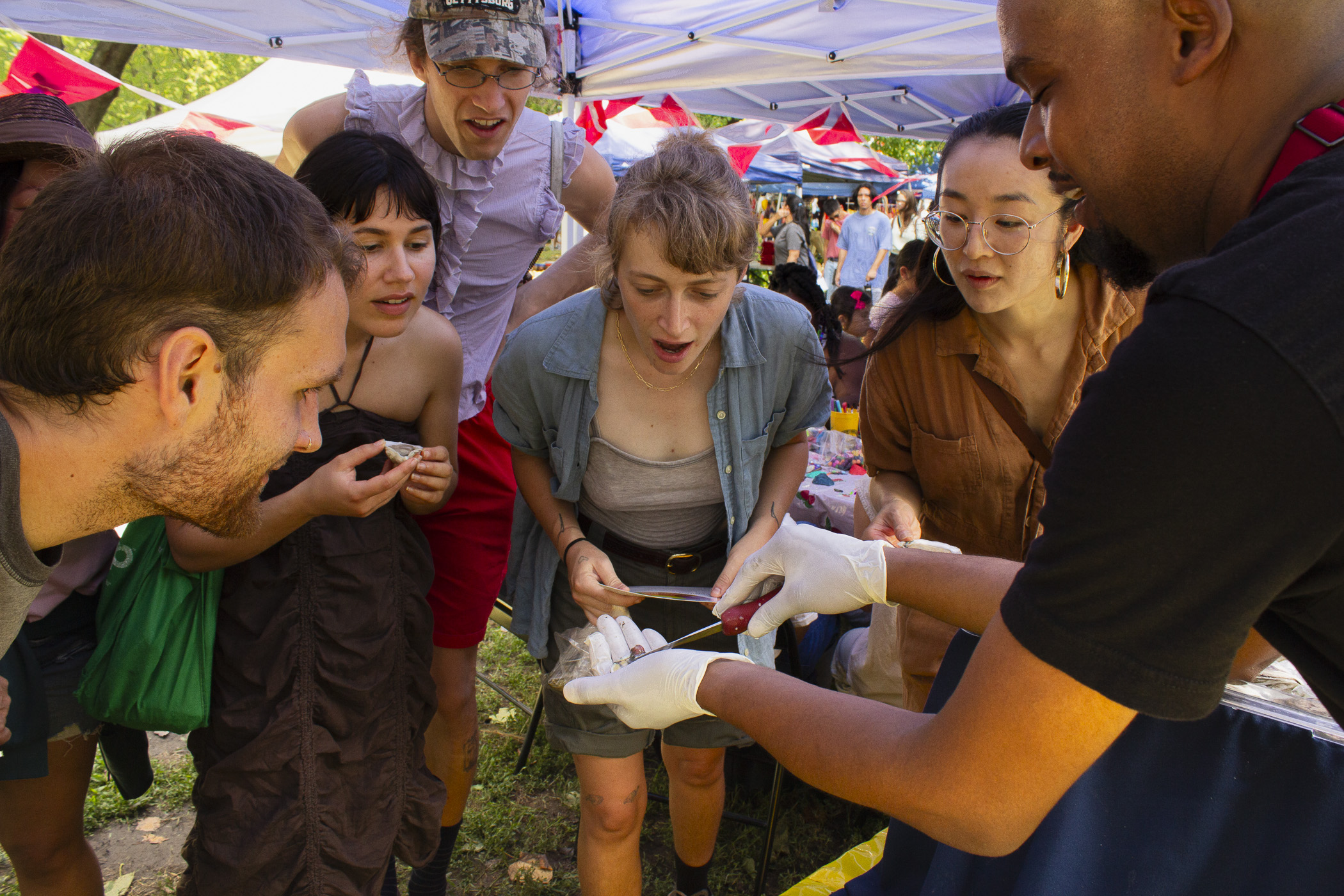

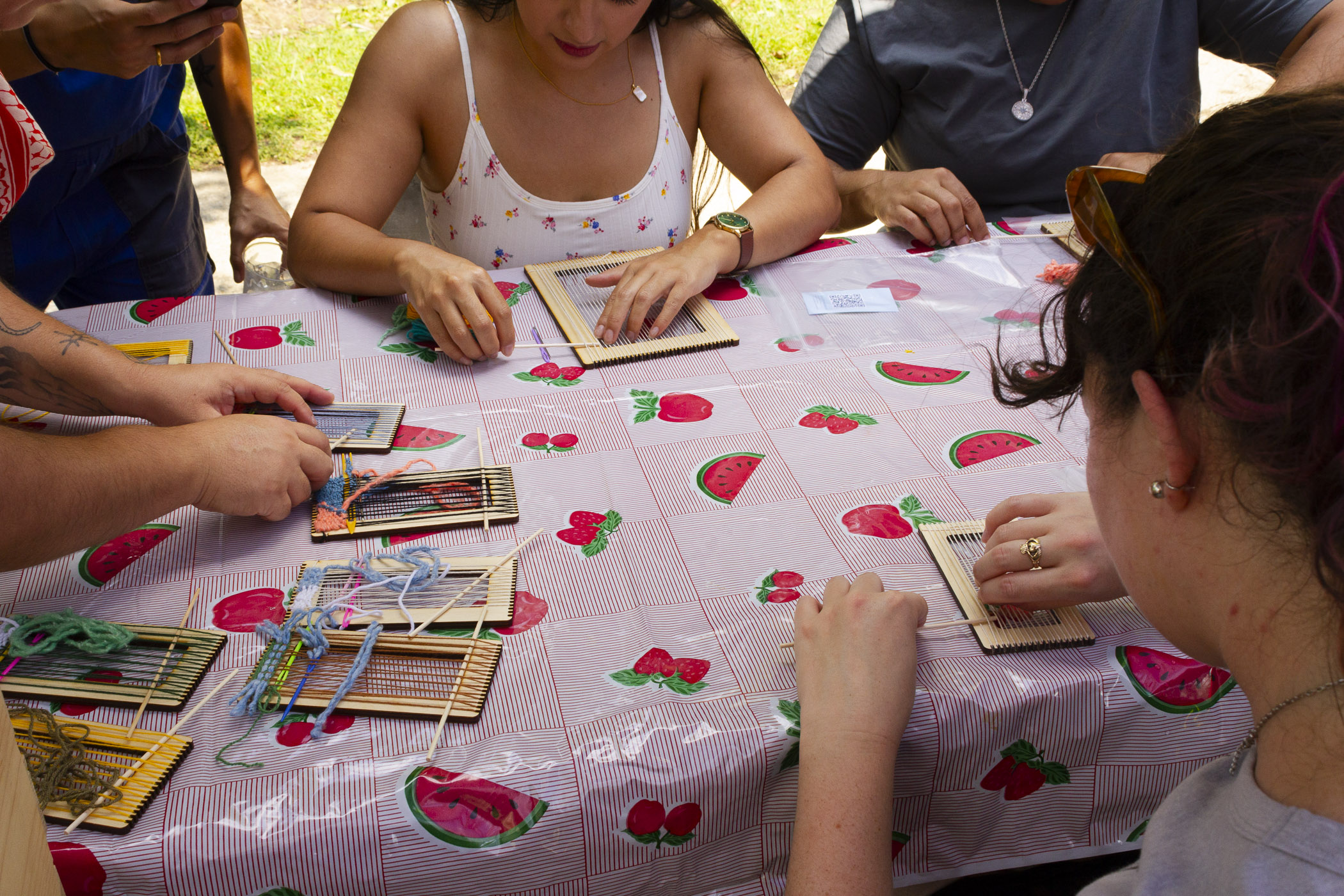
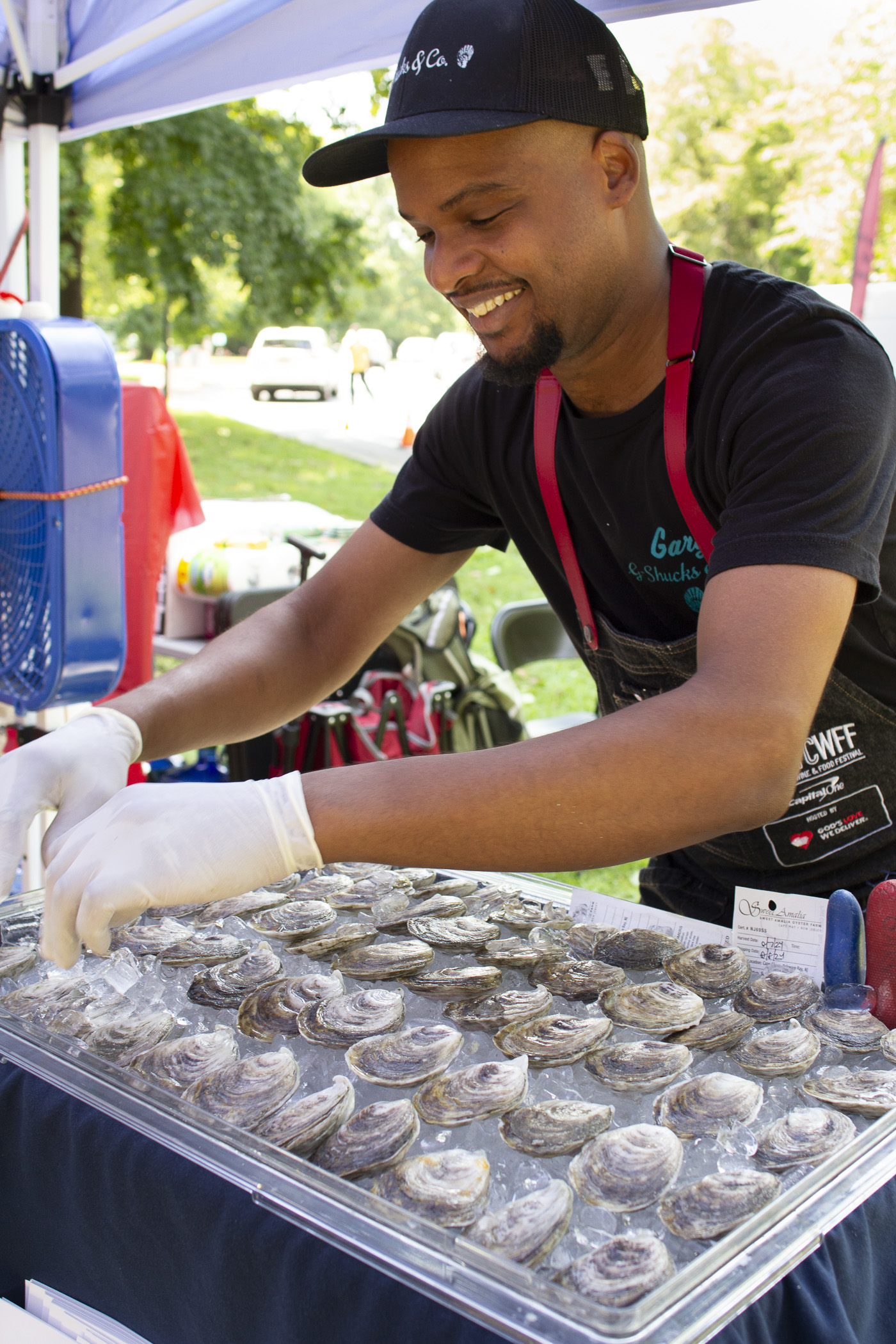
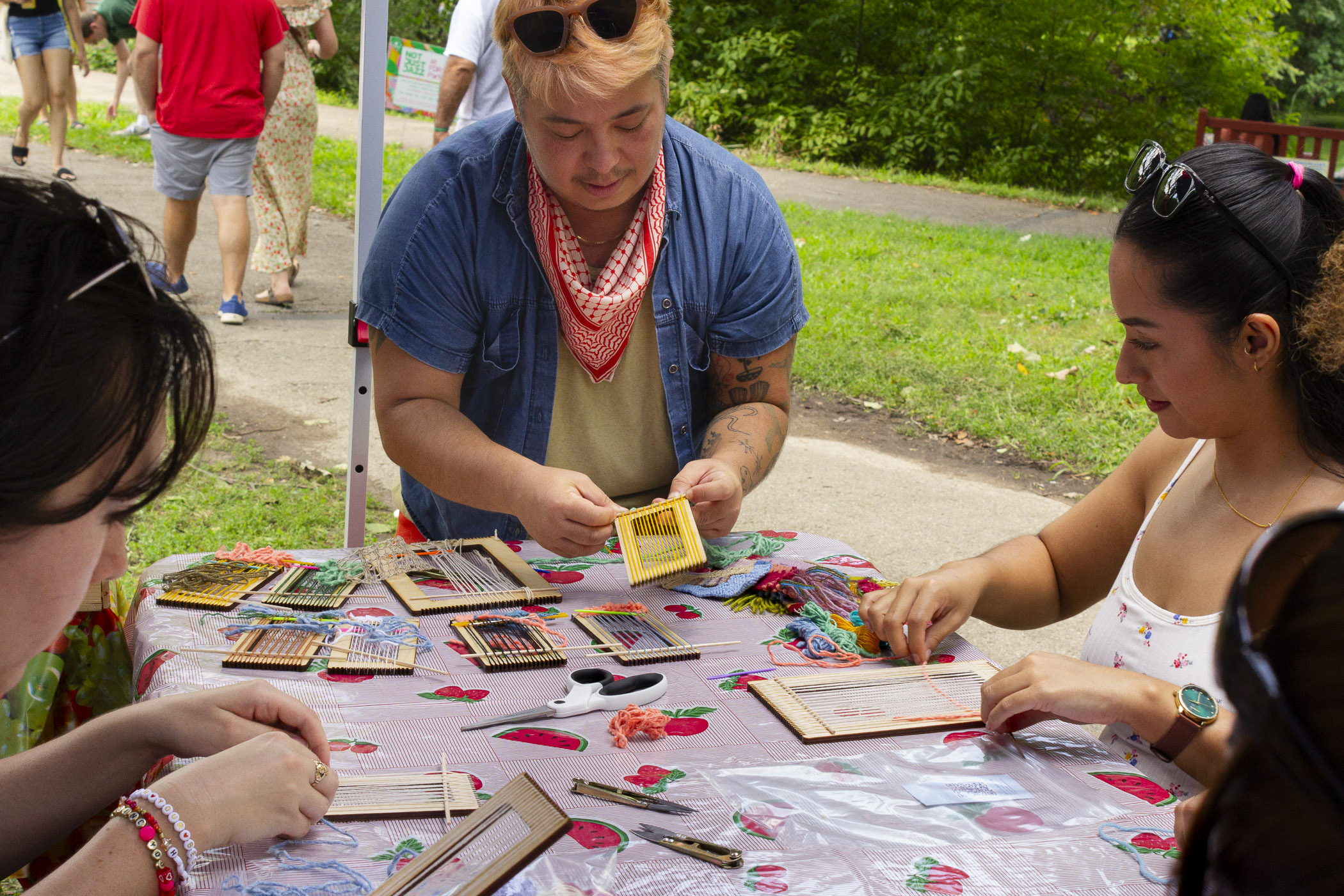
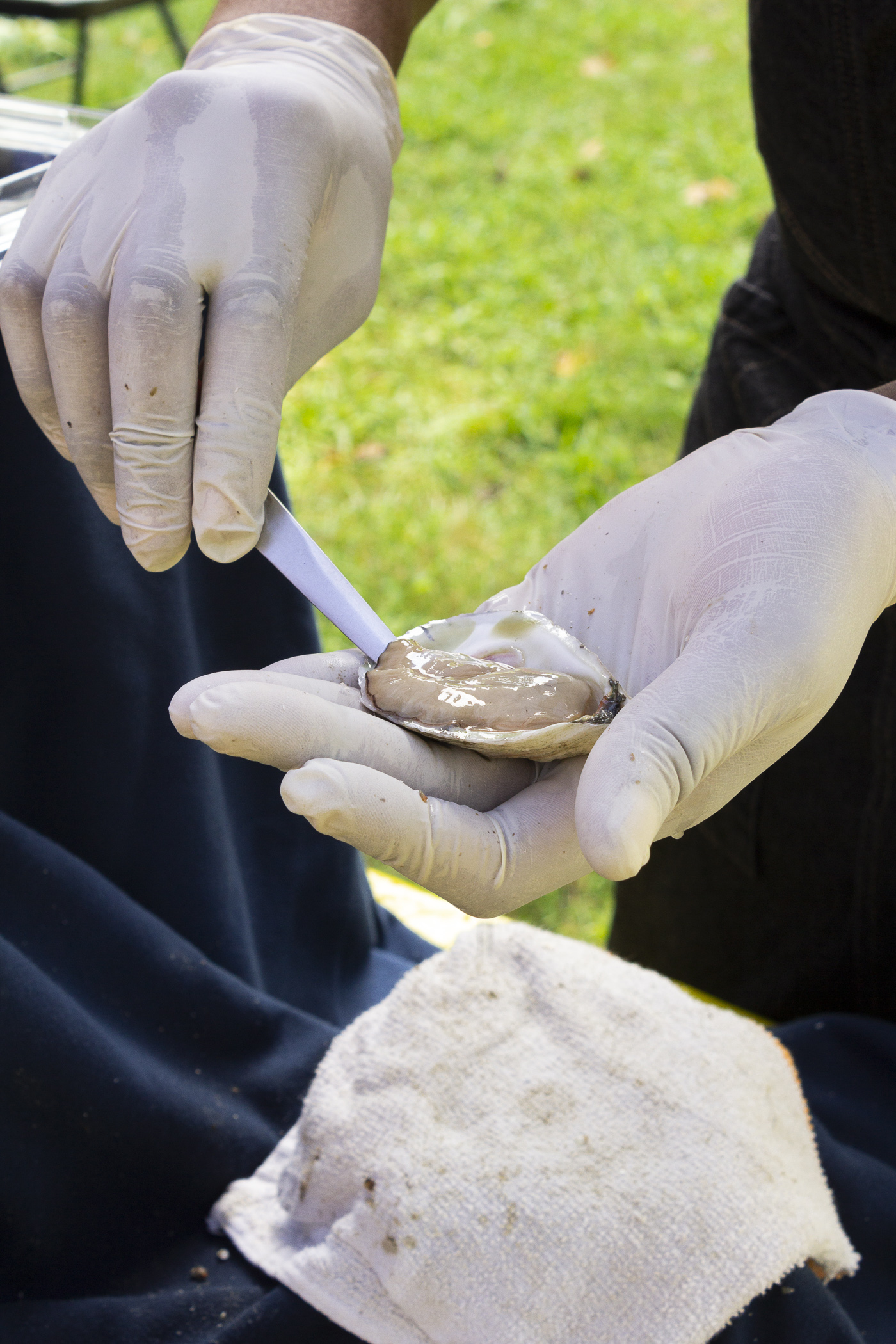
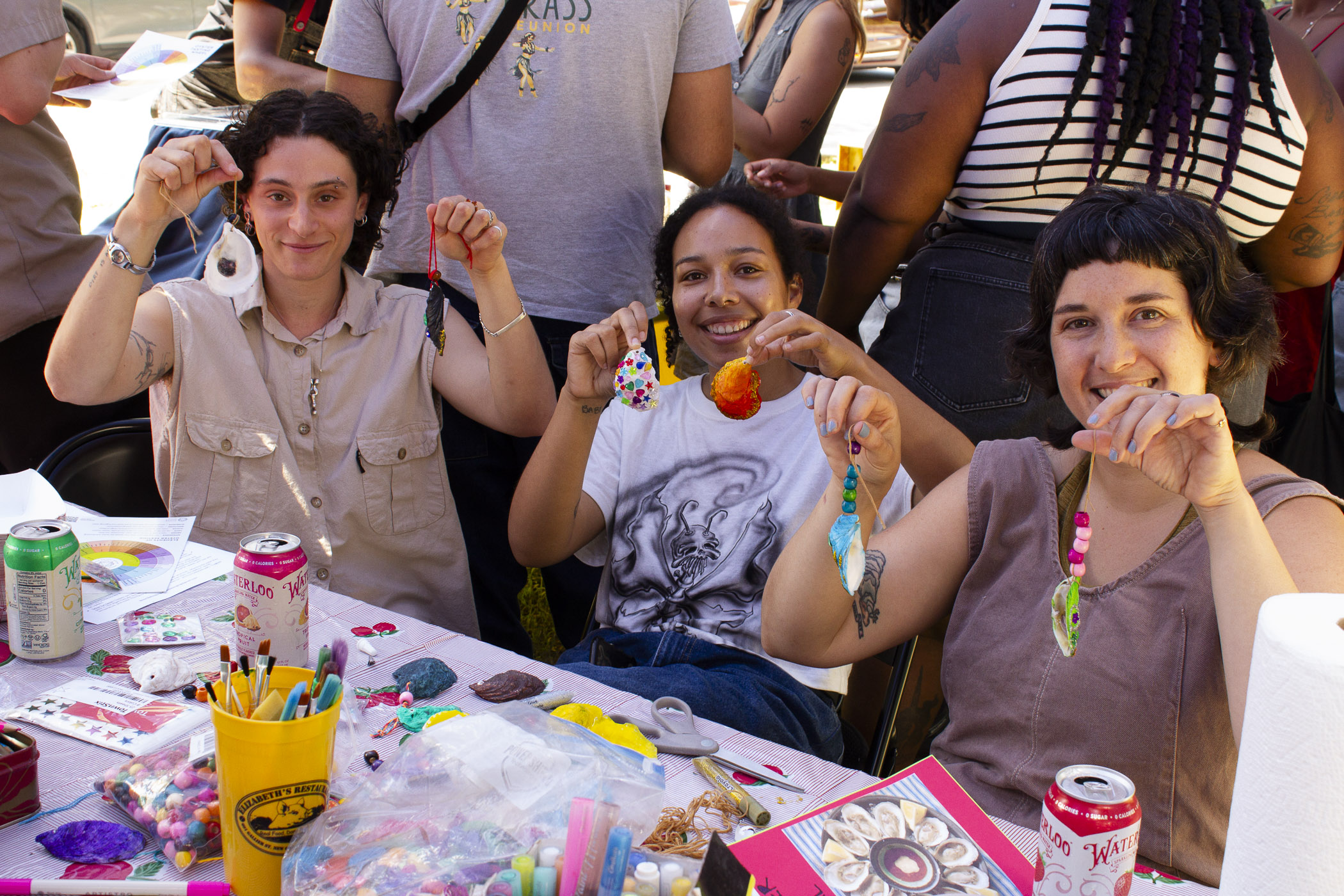

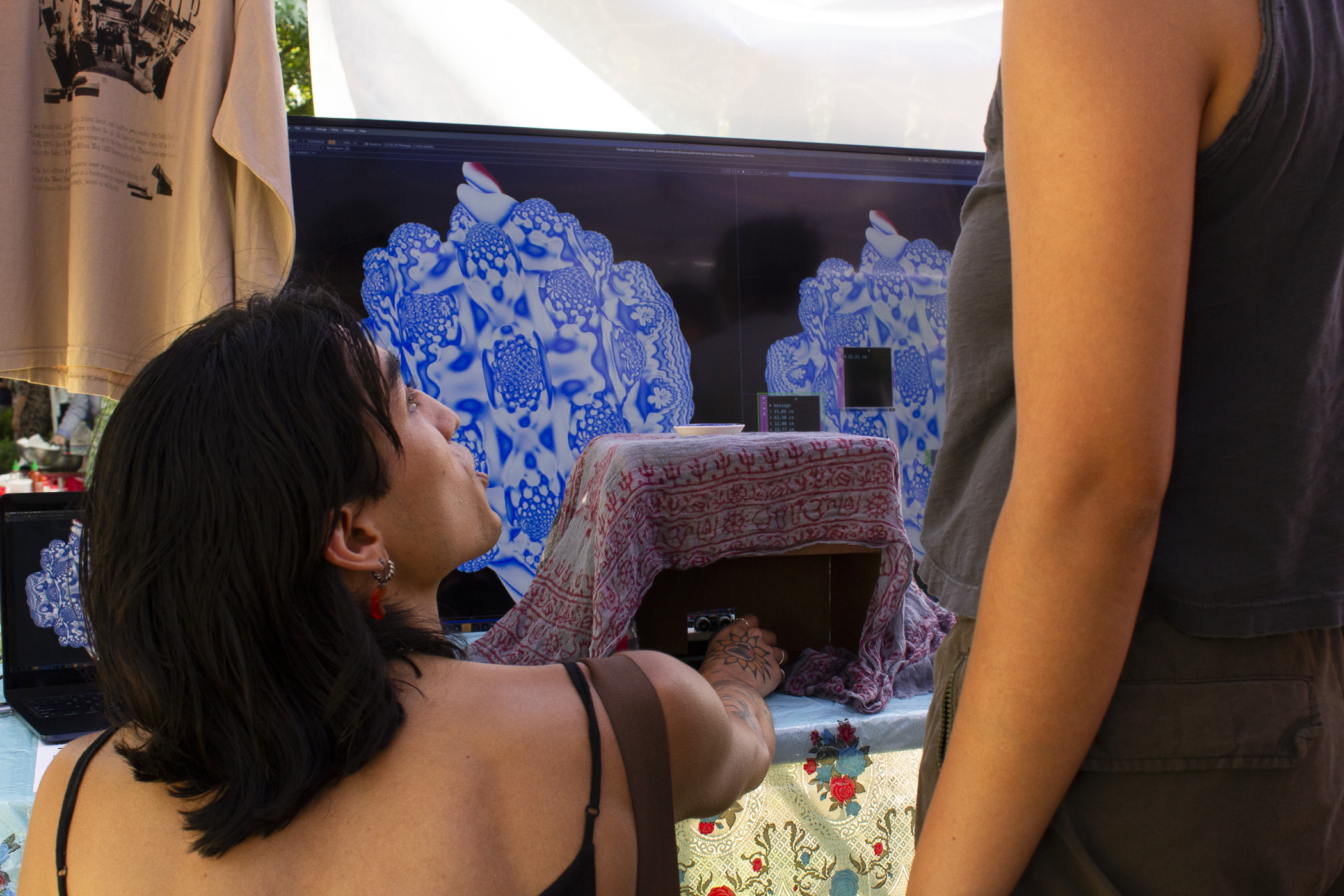
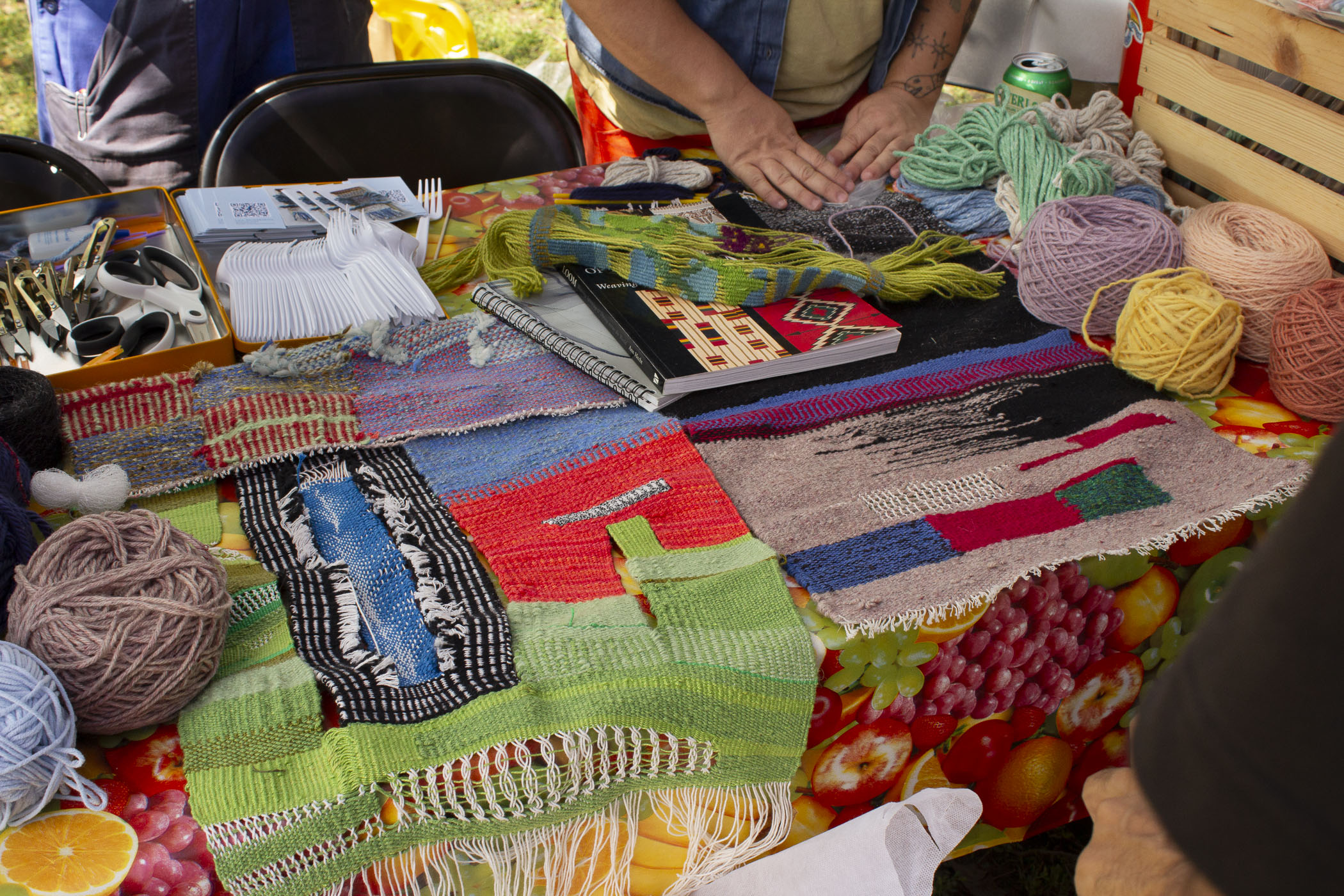
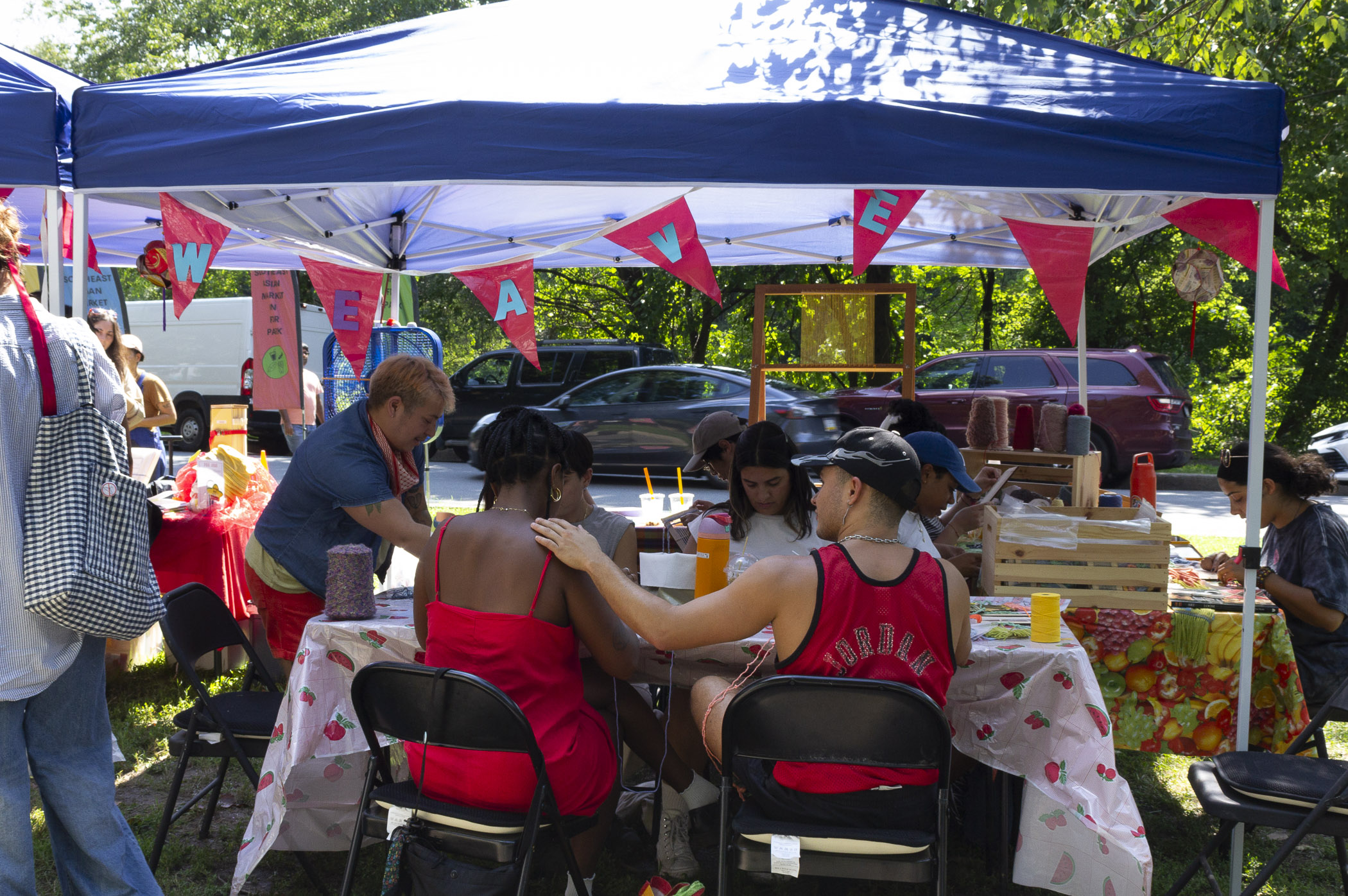
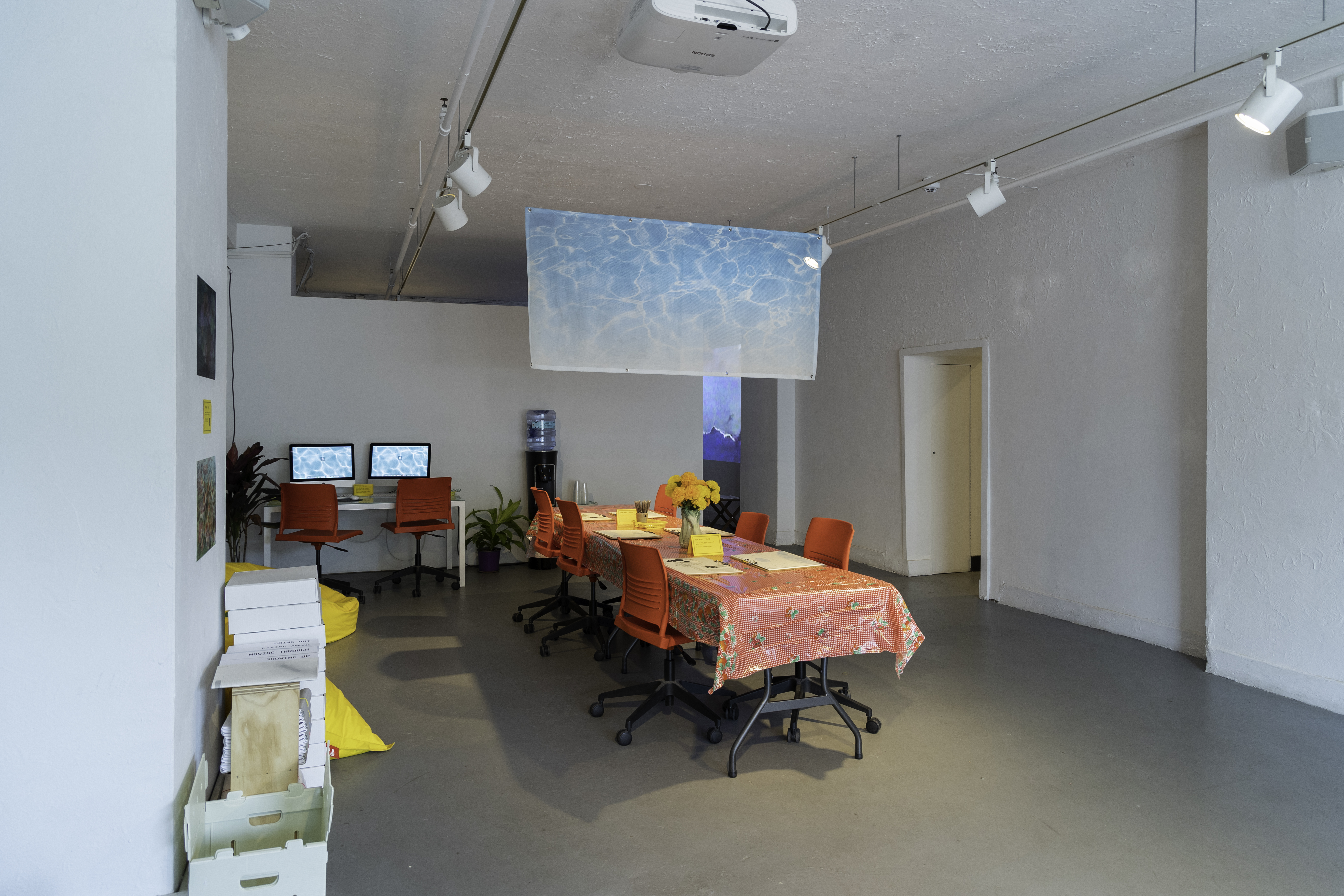
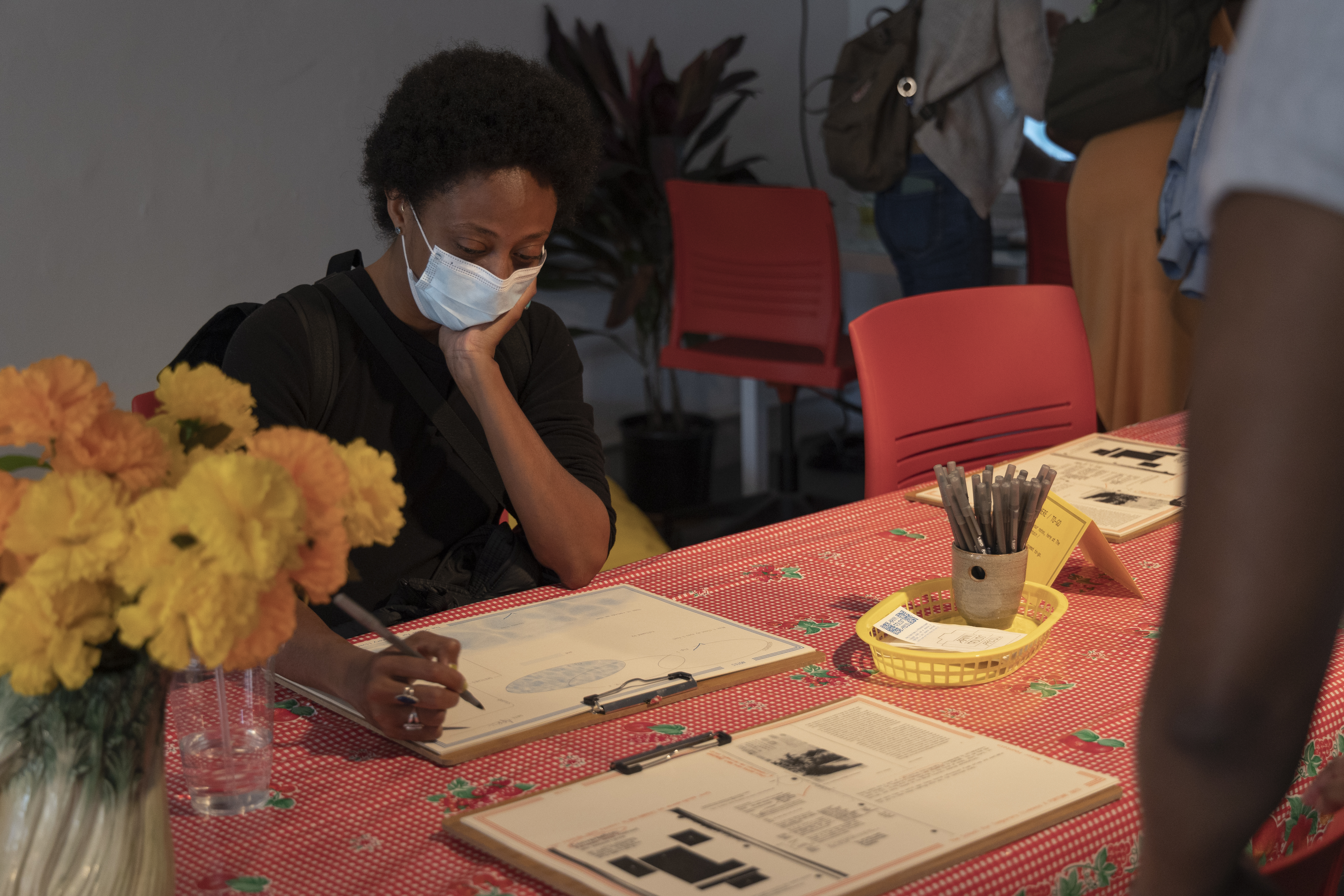
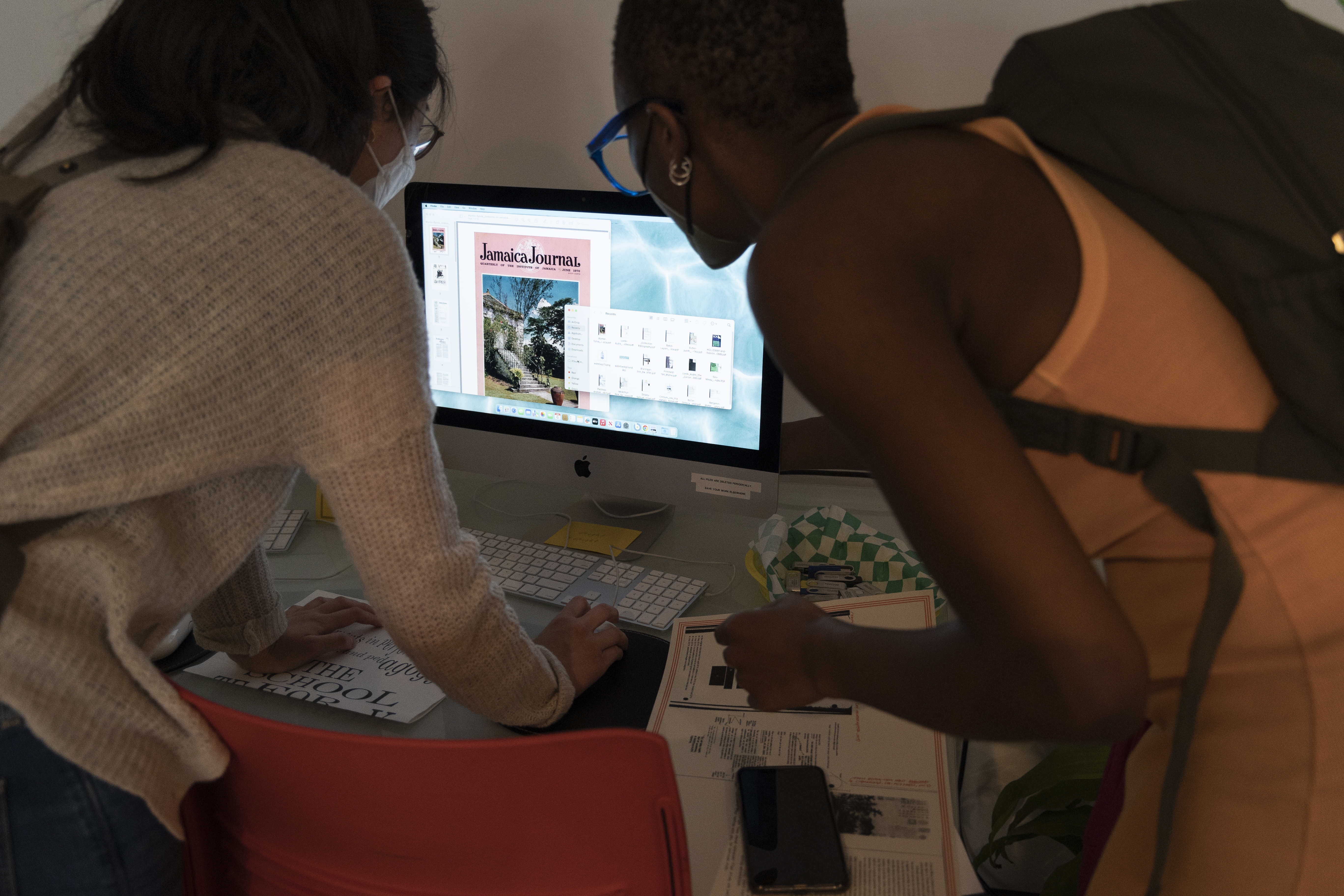
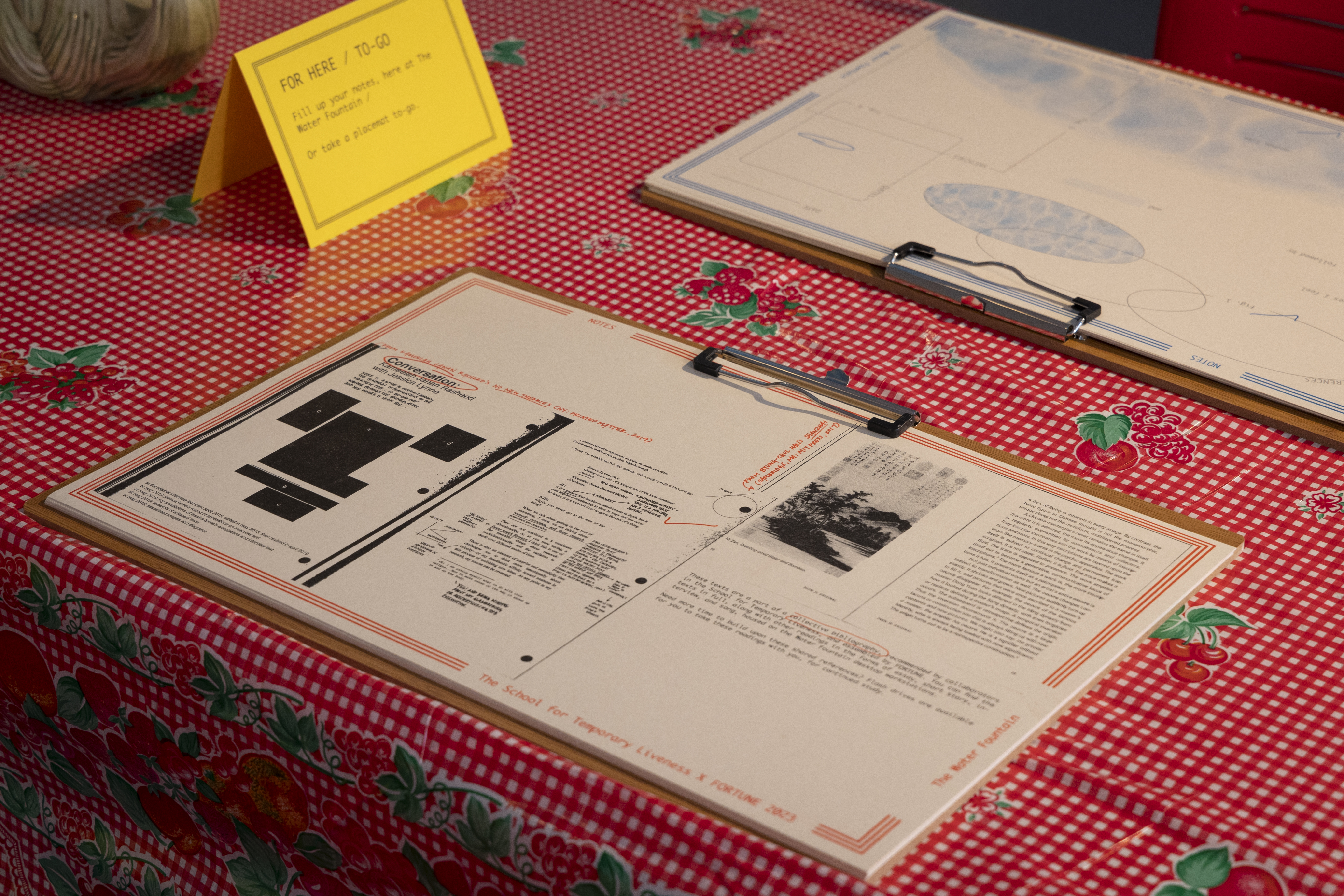
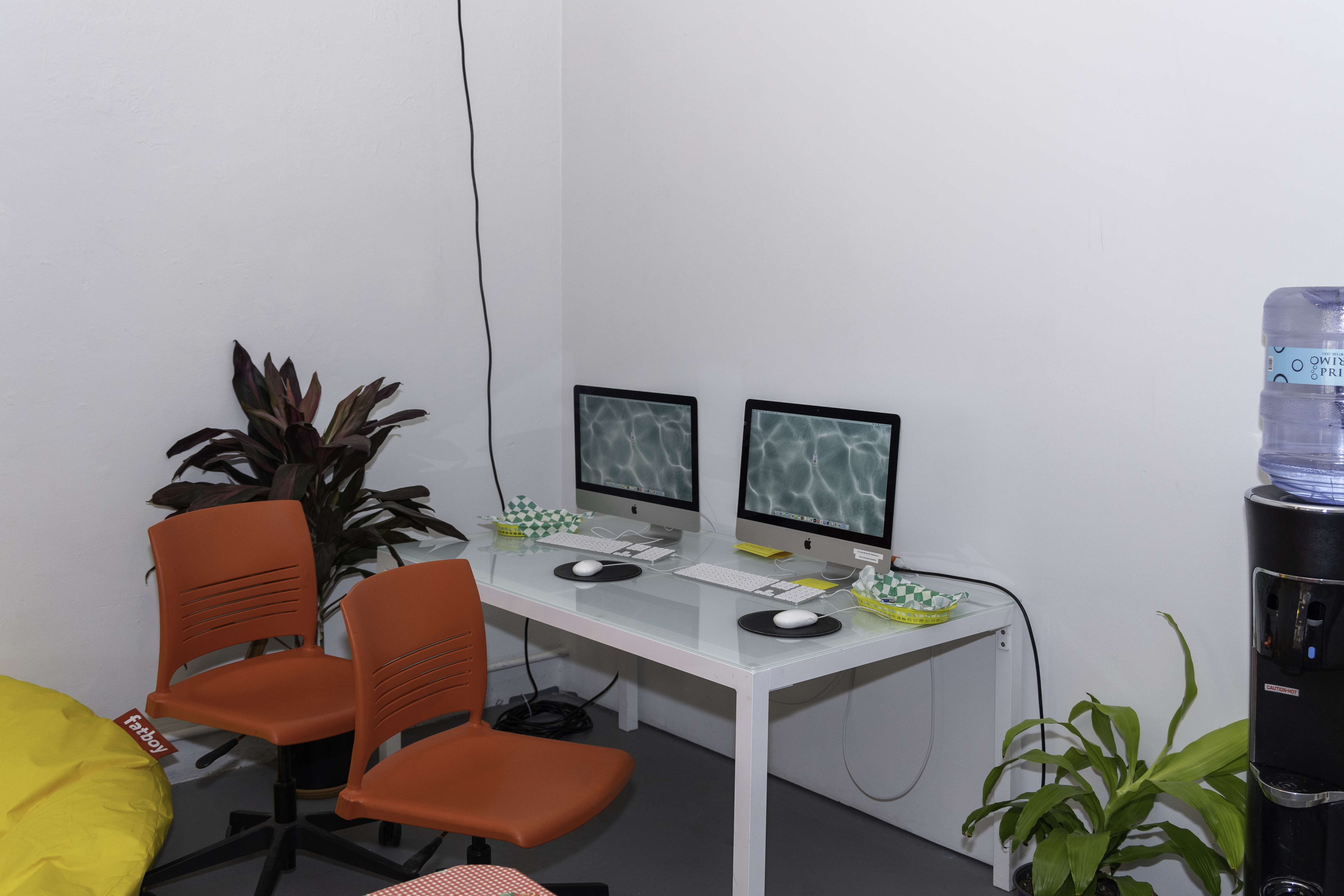
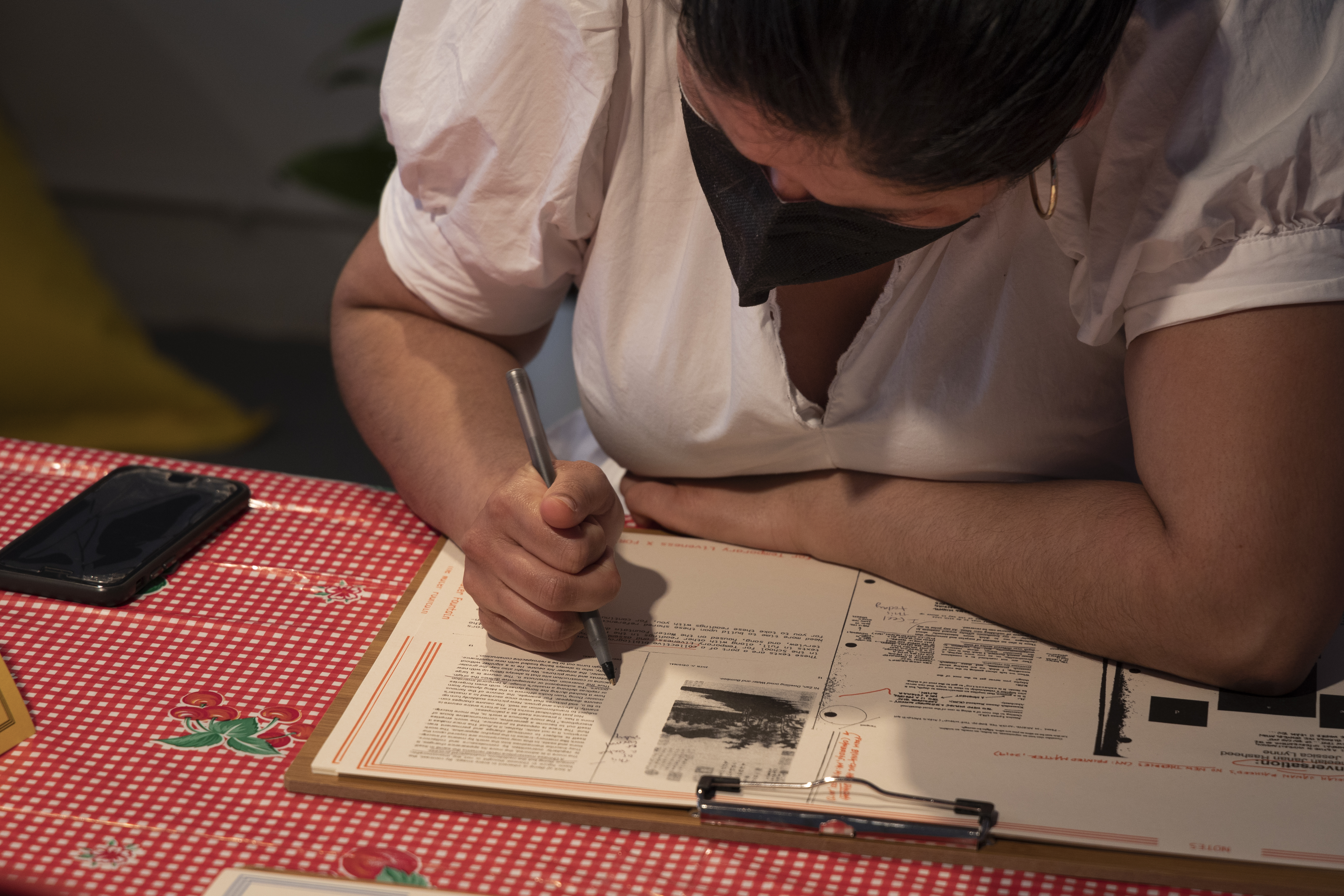
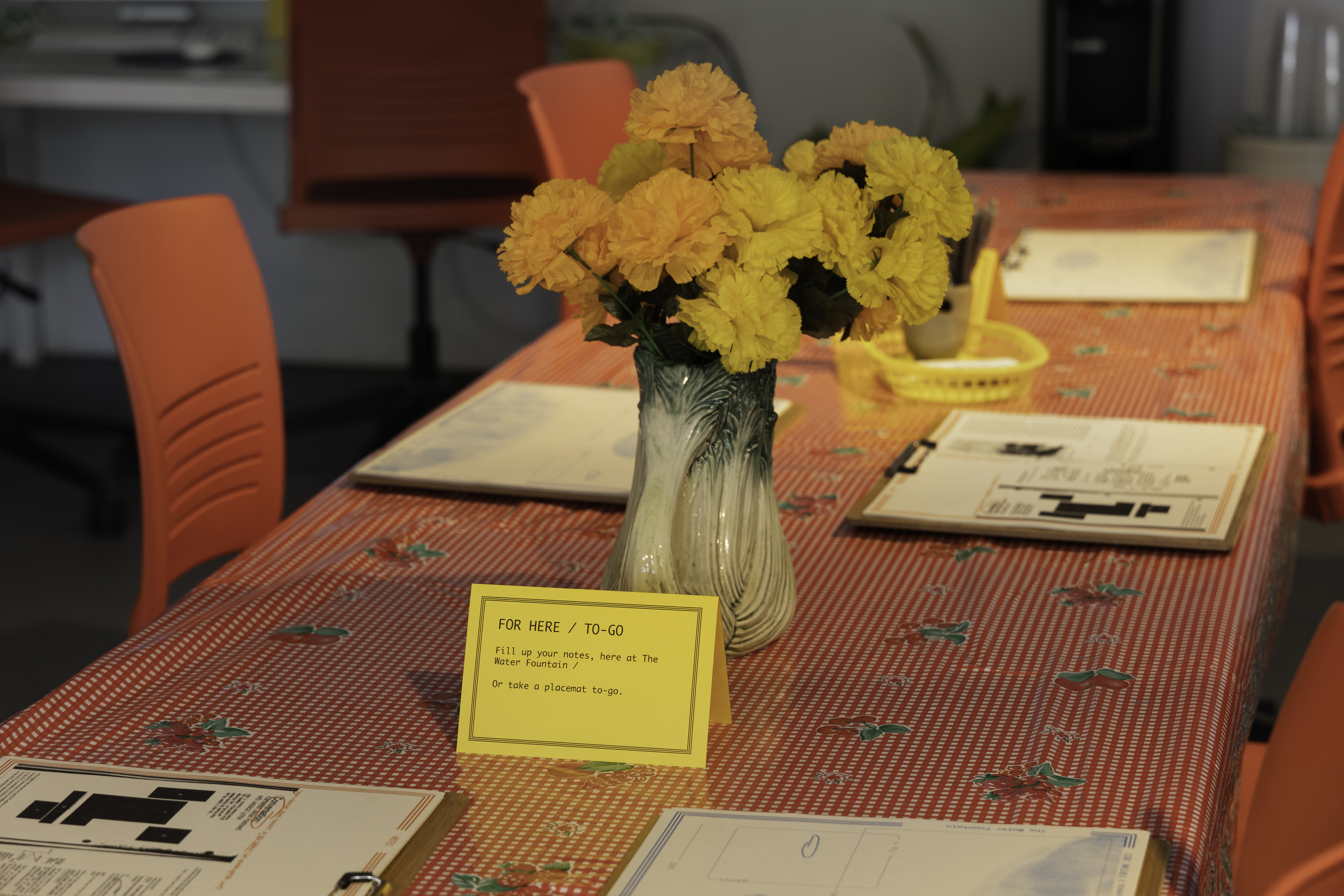

The Water Fountain
An installation curated for The School for Temporary Liveness, Vol. 3, at Slought in West Philadelphia (April 2023). Intented as a space for pooling reflection, The Water Fountain hosted a collective bibliography from the School’s participants, for visitors to read, leave annotations for the next reader, or save on a flash drive for continued study. A space where co-learners could take notes and time together around the table, exchange reference files and (re)marks — a space to fill their cup.
An installation curated for The School for Temporary Liveness, Vol. 3, at Slought in West Philadelphia (April 2023). Intented as a space for pooling reflection, The Water Fountain hosted a collective bibliography from the School’s participants, for visitors to read, leave annotations for the next reader, or save on a flash drive for continued study. A space where co-learners could take notes and time together around the table, exchange reference files and (re)marks — a space to fill their cup.
SHARE at The College of New Jersey
A show at TCNJ Art Gallery (February–March 2023), featuring works new and old, as well as our research processes and their documentation. In company with Piotr Szyhalski’s Labor Camp posters, SHARE examined the ways in which information is disseminated, and also, how to find common reference in the information overload.
In conjuction with the show, we led a risograph printing workshop, in which we made six collaborative zines with 30 undergraduate students. True to the form’s origins, students’ zines focused on sharing skillsets and information otherwise obscured or hard to find through mainstream channels. They were distributed through free libraries on campus.
A show at TCNJ Art Gallery (February–March 2023), featuring works new and old, as well as our research processes and their documentation. In company with Piotr Szyhalski’s Labor Camp posters, SHARE examined the ways in which information is disseminated, and also, how to find common reference in the information overload.
In conjuction with the show, we led a risograph printing workshop, in which we made six collaborative zines with 30 undergraduate students. True to the form’s origins, students’ zines focused on sharing skillsets and information otherwise obscured or hard to find through mainstream channels. They were distributed through free libraries on campus.
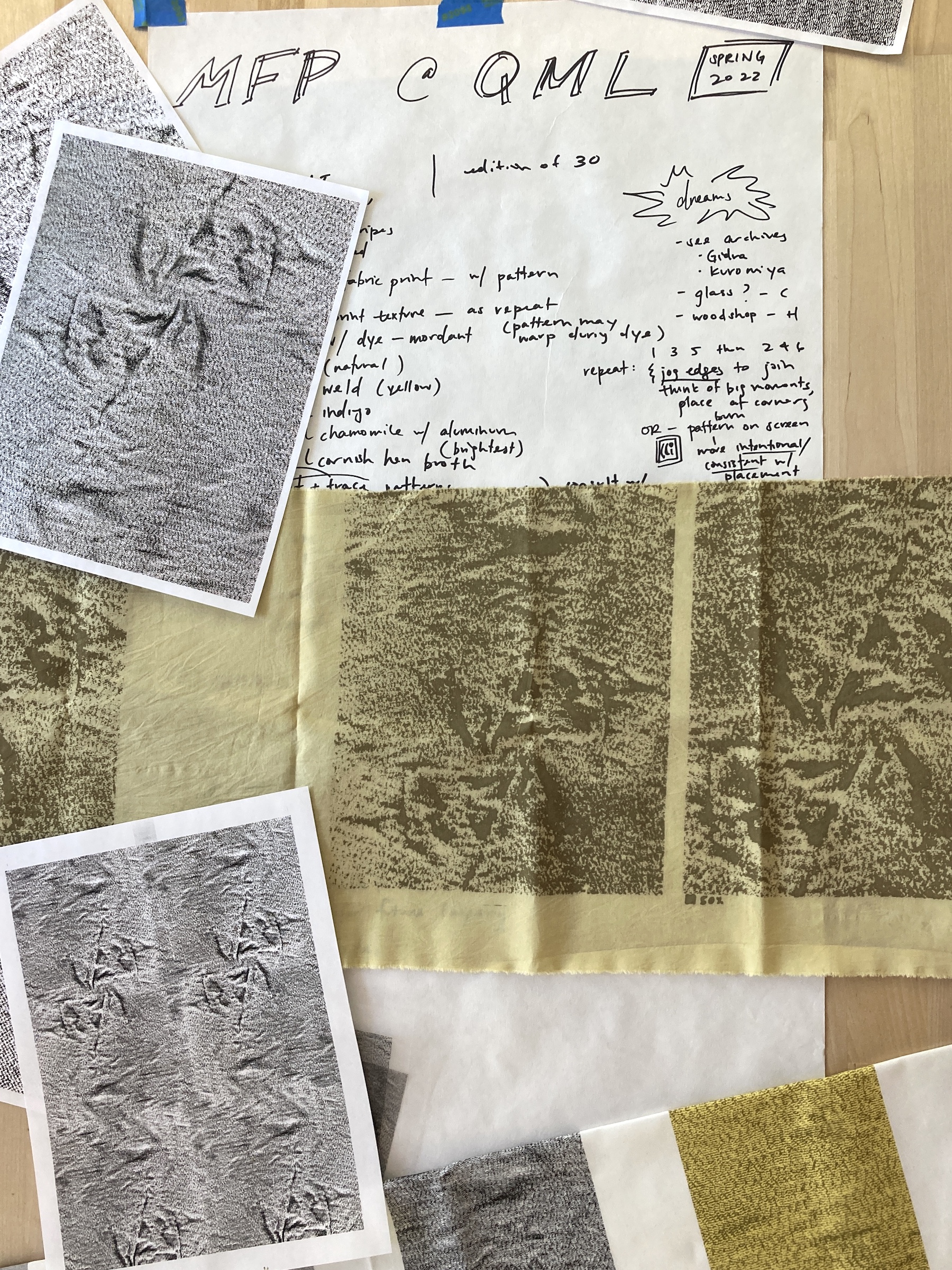
QUEER MATERIALS LAB
A nine-month residency hosted by the Fibers Department at Tyler School of Art and Architecture. We used this time to conduct material research, beyond our usual mode of print.
As residents, we learned about practices for working with textiles — natural dyeing, pattern-making, embroidery. We applied our new tools to make an edition of bucket hats, in memoriam our friend, Joan.
These hats were fashioned in the style of spa-scrubbies, after sculptures Joan exhbited at High Tide Gallery in 2018. Made from cotton fabric, dyed and screenprinted with myrobalan, weld, and madder root. Each hand-finished with embroidered canvas tag.
Moving through these processes of repetition, trial, and error at a slower pace was also a means to process grief and its different textures.
A nine-month residency hosted by the Fibers Department at Tyler School of Art and Architecture. We used this time to conduct material research, beyond our usual mode of print.
As residents, we learned about practices for working with textiles — natural dyeing, pattern-making, embroidery. We applied our new tools to make an edition of bucket hats, in memoriam our friend, Joan.
These hats were fashioned in the style of spa-scrubbies, after sculptures Joan exhbited at High Tide Gallery in 2018. Made from cotton fabric, dyed and screenprinted with myrobalan, weld, and madder root. Each hand-finished with embroidered canvas tag.
Moving through these processes of repetition, trial, and error at a slower pace was also a means to process grief and its different textures.
MANY LAYERS: EXCHANGING & RISO-PRINTING FROM QUEER ASIAN ARCHIVES
A virtual presentation given at the Allied Media Conference, as a part of their Accessing Queer Sanctuary through Print Media and Digital Realms track, in the summer of 2022.
With archivist Eliza Edwards, we co-presented a collection of queer Asian archival materials from 1971–2003 — sourced from 7 archives in 2021, annotated by writers in community, (re-)printed on the risograph, and continually circulated by mail. Attendees participated in a round of collective annotation, and considered their own histories in print. Together, we discussed possibilities for transmitting knowledge through print, in generative and open-handed ways.
A virtual presentation given at the Allied Media Conference, as a part of their Accessing Queer Sanctuary through Print Media and Digital Realms track, in the summer of 2022.
With archivist Eliza Edwards, we co-presented a collection of queer Asian archival materials from 1971–2003 — sourced from 7 archives in 2021, annotated by writers in community, (re-)printed on the risograph, and continually circulated by mail. Attendees participated in a round of collective annotation, and considered their own histories in print. Together, we discussed possibilities for transmitting knowledge through print, in generative and open-handed ways.
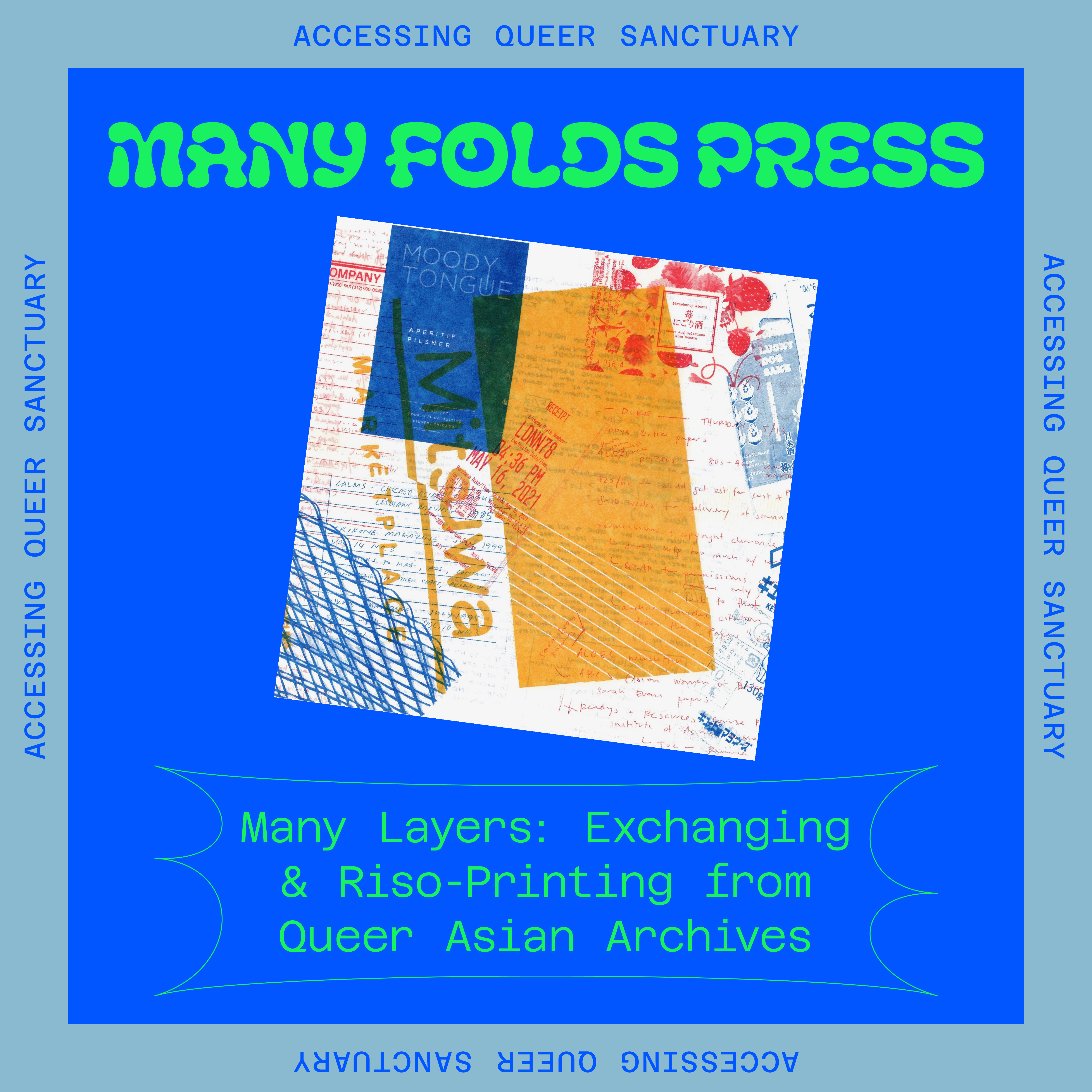
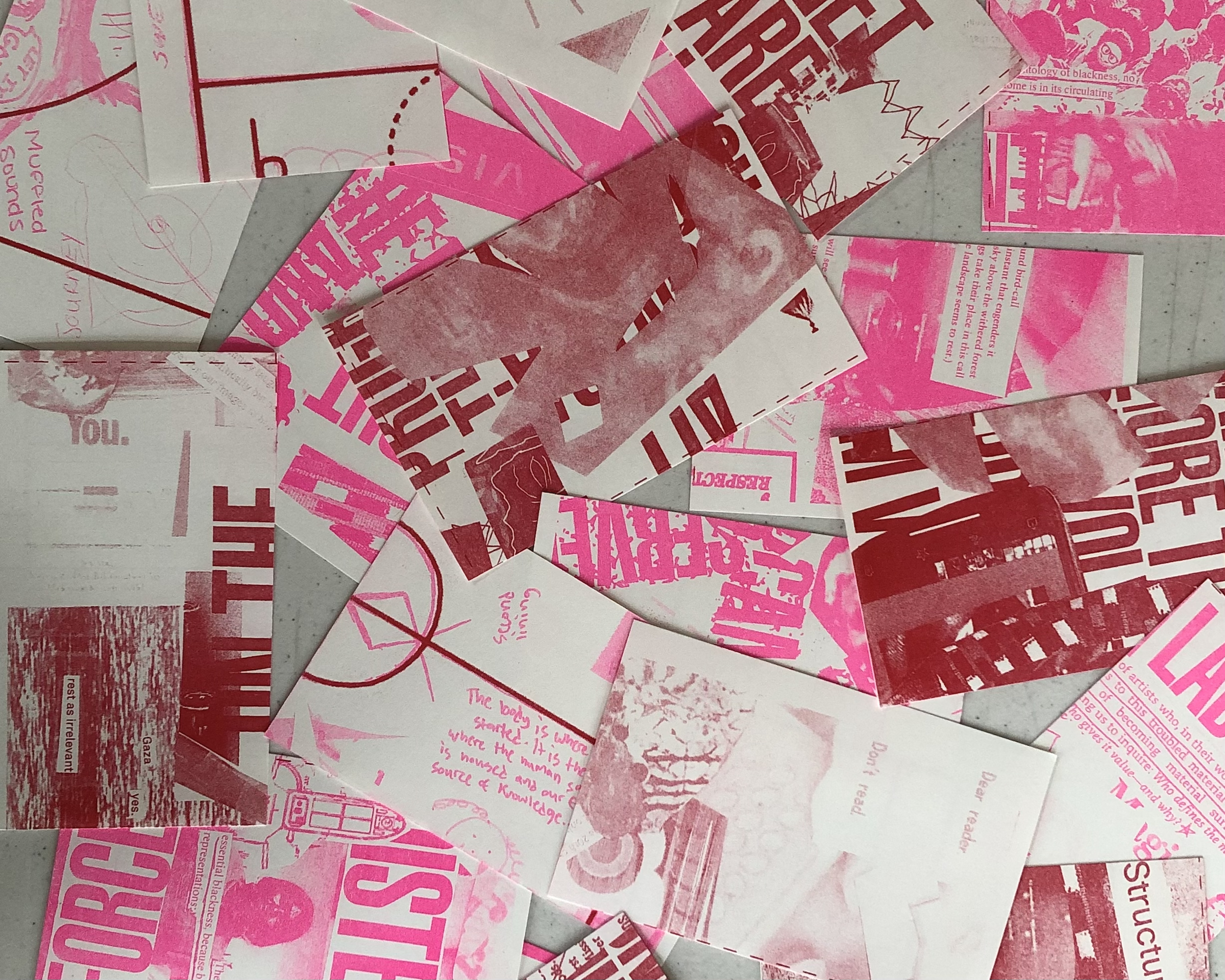
STUDY CYCLE
A day-long workshop with UArts Dance students, as a part of their 2021 Study Cycle: “Fifth Quarter” curated by Ulises. Hosted in the Bok Building gym, we collaboratively marked the movements of learning and practice they had made in the space throughout the week-long cycle. From this collective map, we made sets of risograph printed cards — for modular play, reorganization, and continued replay.
This iteration of Study Cycle asked students to engage in a series of exercises that responded to the site of the gym. Through these exercises, students explored how play can offer prompts for unlearning strict routines of knowledge production.
A day-long workshop with UArts Dance students, as a part of their 2021 Study Cycle: “Fifth Quarter” curated by Ulises. Hosted in the Bok Building gym, we collaboratively marked the movements of learning and practice they had made in the space throughout the week-long cycle. From this collective map, we made sets of risograph printed cards — for modular play, reorganization, and continued replay.
This iteration of Study Cycle asked students to engage in a series of exercises that responded to the site of the gym. Through these exercises, students explored how play can offer prompts for unlearning strict routines of knowledge production.
